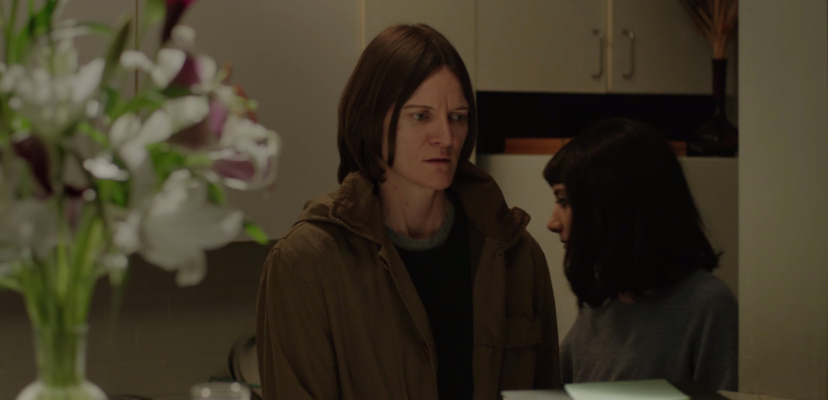Eight Books Featuring Women Dealing with Professional Jealousy
I was thrilled to receive this month’s Ask Your Friendly Neighborhood Lesbrarian request in the A+ inbox, as it’s a topic that isn’t explored nearly enough in books about women: professional jealousy. Here’s the question:
Hi! Question for Casey: I’m experiencing a debilitating bout of professional jealousy for another (deserving) woman, and I’m having a hard time with it. I wonder if there are any books that focus on this regrettable phenomenon? Every update from her is her receiving another award/opportunity/fellowship that I want SO BADLY and know I am deserving of. Any recs of honest depictions of this dynamic would be so, so helpful!
I’ll admit this was a tricky theme to research. I think there just isn’t enough fiction out there tackling this issue, so if you’re looking for a subject matter for your next novel, might I suggest women and professional envy?? That said, there are certainly some incredible books by and about women dealing with this, as you’ll see from what I’ve gathered below. I made an effort to find books featuring queer women and/or by queer women, but couldn’t find enough to fill the column. You’ll see I’ve noted in the descriptions which books have queer content if you want combined themes of women, queerness, and professional jealousy. Onto the books!
The Subtweet by Vivek Shraya

This thought-provoking novel focuses on Neela and Rukmini, two South Asian Canadian women musicians. They form a friendship when Rukmini, an emerging artist, covers one of the more established artist Neela’s songs. But as Rukmini’s fame rises and Neela’s career continues to stagnate, professional jealousy comes between them, leading to the eventual implosion of their relationship via social media. Not only does The Subtweet take an intimate, nuanced look at professional jealousy, it also investigates brown female friendship, the pleasure and price of making art, social media and call-out culture, the way systemic racism and sexism pits women of color against each other, and more. It’s also very much a love letter to women (mostly of colour) artists. Read Drew’s full review of the book, which focuses on its trans femme gaze.
The Other Black Girl by Zakiya Dalila Harris
This buzzy summer 2021 book has been described as a combination of The Devil Wears Prada and Get Out. Nella is a 26-year-old publishing assistant at Wagner Books, where she is the only Black employee. Then: Hazel is hired. At first, Nella is thrilled to be working with another Black woman. But increasingly sinister office drama soon begins. Hazel is more outgoing, more accomplished, and better at playing the office politics games. Nella is left in the dust, seething with jealousy. Then the notes start to appear on Nella’s desk. They say things like “Leave Wagner NOW.” Harris expertly creates a delicate balance of tension. Is Hazel just an extremely charming, assertive person who is better at getting what she wants in the workplace? Or is Nella being deliberated pushed aside by her, or someone else, who thinks there’s only room for one Black girl at the office?
Swing Time by Zadie Smith

Smith’s 2016 novel traces the complicated friendship between two Black women who both dream of being famous tap dancers. Only one of them, Tracey, has the talent to actually realize the dream. While Tracey becomes a kind of prodigy who wins many awards, the unnamed narrator is left behind, hampered by her flat feet. The women, who are both biracial with one Black and one white parent, meet as girls in 1980s London. They form a fast friendship as the only two Black girls in their dance class and in their mostly white neighborhood. Their complicated relationship continues into their twenties, but it is there that it ends, the nameless narrator moving out of the orbit of her friend who has always overshadowed her. Despite their separation, their lives and careers continue to intersect as each woman grows older and finds varying levels of success in relation to the other.
The Interestings by Meg Wolitzer

The titular group of six people in Wolitzer’s novel first meet as teenagers at an arts summer camp in 1974. The novel tracks them through the decades of their lives, as they try to follow through on the creative potential and talent that were so praised in them as adolescents. Some members of the group give up their artistic dreams and pursue more practical careers. Others are shockingly successful, both critically and financially. Although their complicated group friendship endures, the widening gaps between how different each of their lives have turned out become impossible to ignore. Envy, class, money, power, and the meanings of talent and creativity are all explored as the characters come in and out of each other’s’ lives. If The Interestings sounds up your alley, it’s worth also checking out one of Wolitzer’s other novels, The Female Persuasion, which investigates some of the same themes.
Break in Case of Emergency by Jessica Winter

Black satiric comedy about a toxic workplace, in/fertility, and friendship, anyone? Jen is a white woman in her early thirties who has abandoned her dream of a painting career and taken a job at a feminist non-profit. Led by a celebrity philanthropist, the organization supposedly empowers women, but no one who works there seems to have time to follow this mission amidst backstabbing their colleagues, sucking up to the famous CEO, and making up clever acronyms for programs that don’t exist. Jen’s helplessness — and complicity — within the passive-aggressive toxicity is brought into sharp relief when she bitterly compares her career to those of her two best friends. One friend is a wealthy attorney, the other a passionate artist. On top of her increasingly terrible work environment, Jen is struggling with infertility. Her increasing anxiety about having a baby bleeds into both her job and her marriage.
The Animators by Kayla Rae Whitaker

The two women team of Mel and Sharon are determined to carve their way through the male-dominated field of animation. They are artistic partners and best friends, whose contrasting personalities compliment the other: Sharon is quiet, but ambitious; Mel is extroverted and brash. After meeting in college and bonding over their working class roots and talent for animation, they spend their twenties working on their masterpiece feature film. The film takes Mel’s difficult and tumultuous childhood and turns it into a provocative piece of art that has its creators on the cusp of making it big. But just as they are on the brink of success, cracks appear in their relationship. Sharon begins to wonder if it is only Mel, with her raucous personality, who is the true artist.
They’ll Never Catch Us by Jessica Goodman

A YA book might not be where you’d expect to find themes of professional jealousy explored, but I assure you this fast-paced thriller delivers! After all, competitive high school athletes looking to succeed to make themselves a future outside their small town is as demanding a job as any. Two sisters only a year apart, Stella and Ellie are both vying for the top spot on their cross-country running team. Their lives and plans are upended when a new talented runner, Mila, moves to town. At first, Mila is just a threat. But Ellie and Stella gradually warm up to Mila, seeing her as a potential friend or even ally. But as regional competitions approach and college scouts arrive to suss out the girls’ potential, all three are determined to put friendship, sisterhood, and other (possibly queer) connections aside. Then, Mila goes out for a training run and never returns. All the suspicion falls on Ellie and Stella. A great book for fans of Megan Abbott!
We Play Ourselves by Jen Silverman

Until recently, Cass was a lauded queer feminist playwright on the precipice of making it big in New York City. Enter a humiliating public scandal. Reeling, Cass flees to L.A. to reinvent herself. There, she meets Caroline, a charismatic and talented filmmaker and her new next door neighbor. Caroline’s house is frequented by a pack of teenage girls who are the subjects of her new semi-documentary film about the girls’ after school fight club. As Cass becomes drawn into the world of Caroline and the teens, she becomes increasingly disturbed by Caroline’s manipulation of the girls for the purposes of her movie. At the same time, she can’t help but admire Caroline’s dedication and devotion to her art, something Cass deeply identifies with. The intersections of creativity, rage, jealousy, ambition, and power all come to a head as Cass tries to reckon with her past to forge a path forward as an artist.
Have you read any fiction (or non-fiction) that tackles themes of women dealing with professional jealousy? Have you dealt with it yourself in real life? Please share in the comments!
The 11 Best Lesbian and Bisexual Movies of 2019
LGBTQ TV and LGBTQ movies remain nearly impossible to rank at the end of every year, but for completely different reasons. With TV, the medium has evolved so much it’s impossible to consume and process all of it! (Hey but we tried.) With movies, it’s the opposite thing, and even when, like last year, there are plenty of movies to rank, it’s hardly ever apples-to-apples comparisons. What is “best” when you’re comparing films made by queer people for queer audiences, pretty okay Netflix movies with wide reach and only gay supporting characters, celebrated foreign films, indie films that only get released in New York and LA, blockbusters with huge reach and only hints at queerness, films that never make it off queer festival circuits, and on and on?
Things are getting brighter in the world of queer cinema, but we’ve still got a long way to go! For now, I’ve rounded up the best movies of 2019 that you can actually watch (by which I mean they are streaming, in theaters, or have sold streaming rights and have a projected streaming date in place). I’d love to hear about your favorite queer movies of 2019 in the comments!
Portrait of a Lady on Fire (In theaters)
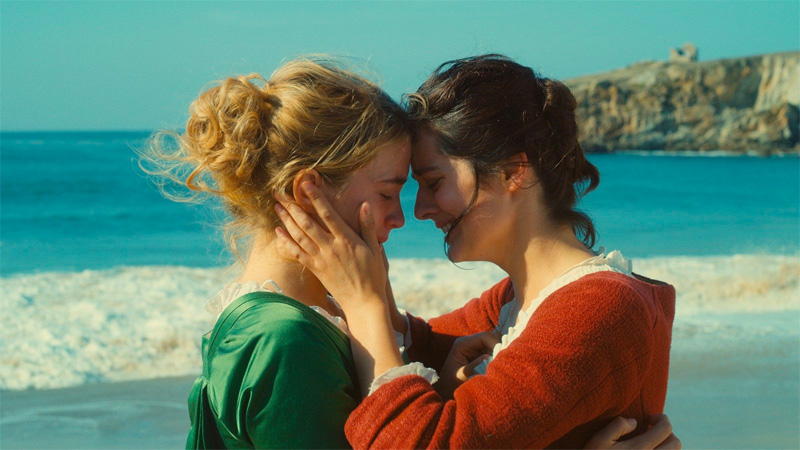
“Portrait of a Lady on Fire is not simply a work of the female gaze, it is not simply a work of lesbian cinema. It is pushing against the boundaries of the screen, frantically, lovingly, desperately, erotically, grasping grasping grasping for a new language, a new way of seeing.” — Drew Gregory
Wild Nights With Emily (Streaming February 2020)
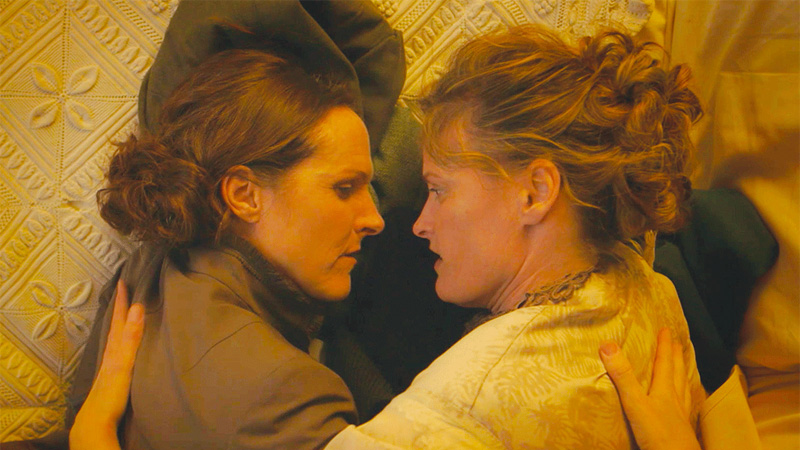
“During one of their meetings, Higginson tells Emily, “When I read your poetry, Miss Dickinson, I’m left feeling… I’m not sure what.” He could be paraphrasing the countless reviews written by male critics about queer and feminist art throughout history. Emily demures, but she could have told him that her poetry, like this film, was written without a man in mind.” — Heather Hogan
Booksmart (Hulu, Amazon)
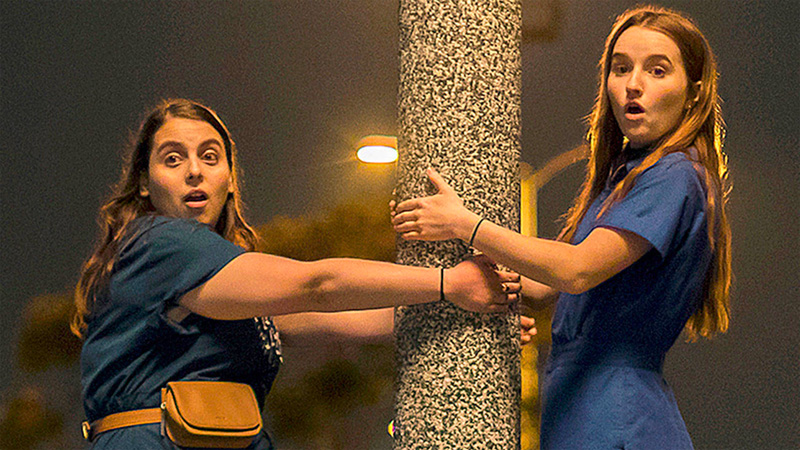
“The flavor may change slightly depending on how much of each ingredient you use, and the way those ingredients interact with each other, but the recipe for high school comedies remains largely the same. Enter Olivia Wilde’s Booksmart, a film that honors and skewers the genre. It also does what Mean Girls wouldn’t: It makes a main girl gay.” — Heather Hogan
Her Smell (Amazon)
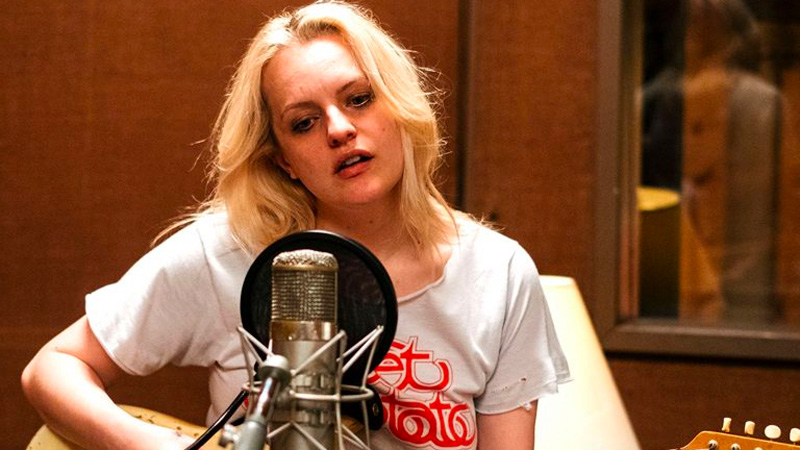
Elisabeth Moss has played a lot of characters in her career, but none like Becky Something, a queer, narcissistic rockstar on a spiral into oblivion. Becky is a Joan Jett archetype dialed up to a zillion, destroying everything — men, women, herself — on her path to superstardom and burnout.
The Heiresses (Amazon)
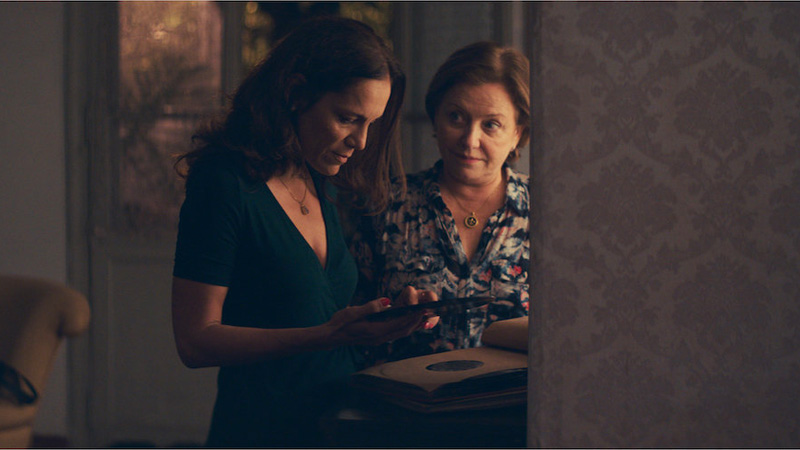
Around here, we love a good queer midlife crisis that results in a sexual awakening, and Marcelo Martinessi’s film delivers that in glorious detail. Chela’s (Ana Brun) partner is arrested and in her quest to earn enough money to bail her out, after selling some family heirlooms, she decides to pick up a few shits as a taxi driver. A younger passenger sets her yearning in motion and the payoff is exquisite.
Vita & Virginia (Hulu, Amazon)
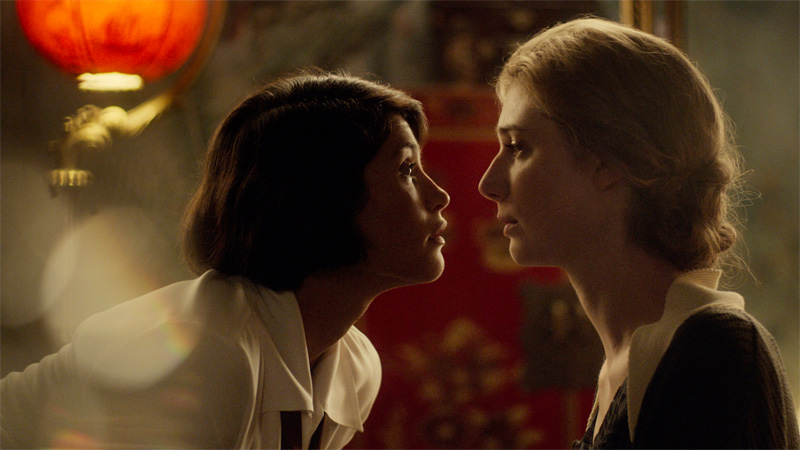
Vita & Virginia wasn’t what it wanted to be, but it’s still a really solid film about real life gal pals Virginia Woolf and Vita Sackville-West whose letters remain some of the most gut-punchingly romantic pieces of writing I have read to this day. It’s an absolutely fine afternoon diversion and frankly we need more lesbian films in that category.
Bombshell (In theaters)
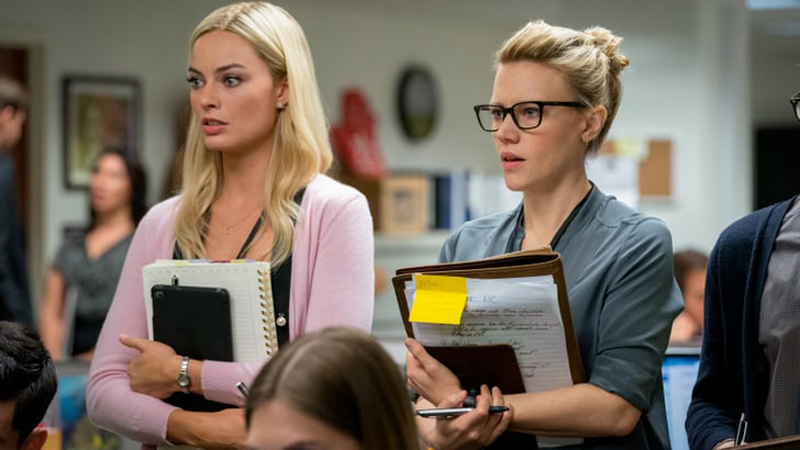
“As a person who group up inside the cult of Fox News, and who spent years researching it academically to write about it, and who remembers every moment of the 2016 election in excruciating detail, I had absolutely no desire to watch Bombshell — until Riese told me Kate McKinnon finally plays an actual lesbian in it. I’m not talking about dyke-y hair and gun-licking as subtext. I’m not talking about just her general way. I’m talking about Kate McKinnon’s character having sex with Margot Robbie’s character and their relationship becoming the most emotionally resonant thing in the entire movie.” — Heather Hogan
Charlie’s Angels (Streaming Summer 2020)
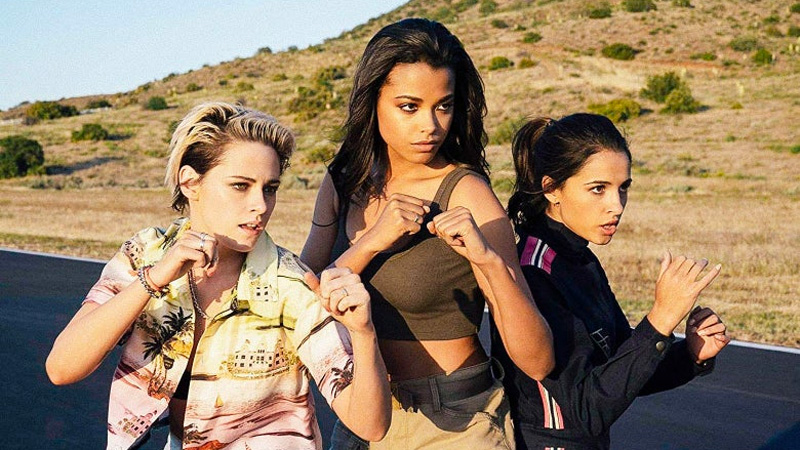
“And I’m going to go ahead and say it: Stewart’s Sabina is absolutely queer, even if it’s mostly subtextual. For some, there won’t be enough “evidence” to declare her a queer character, and I understand that to a degree. She’s certainly not out here kissing women between fight scenes (honestly, Cameron Diaz and Demi Moore come closer to kissing in Charlie’s Angels: Full Throttle than any two women in this movie do), but that shouldn’t really be the sole marker of a character’s queerness. We see Sabina rather obviously check out a woman at the gym, and a lot of what she says about her past is seemingly intentionally ambiguous about her sexuality. Also, I’m not so sure Elena doesn’t have an ex-girlfriend, too, but I don’t want to give too much away.” — Kayla Kumari Upadhyaya
Wine Country (Netflix)
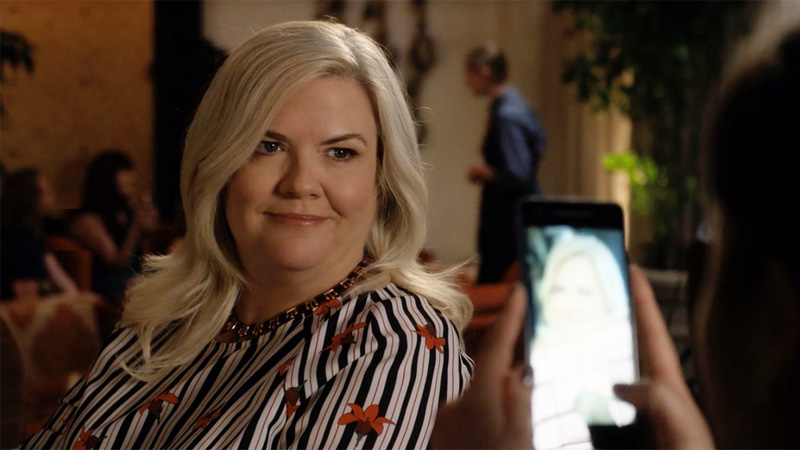
“It’s all wine and good times and inside jokes and singing and flirting (by Val with a server named Jade) on their first night in Napa, but when Cherry Jones shows up to give an inspired performance as an erratic, misanthropic tarot reader during their Saturday hangover, things take a turn for testy. The more vineyards they visit, the more wine they drink, the more they individually unravel; and then begins their collective cracking. Wine Country isn’t just womanhood and women’s friendships; it’s specifically middle age womanhood and friendships.” — Heather Hogan
Someone Great (Netflix)
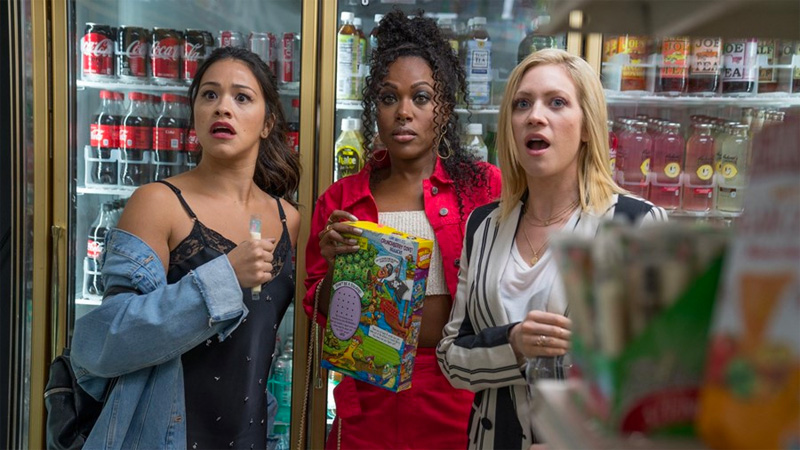
“I think Someone Great was very effective in throwing its audience into the deep end and then working its way backwards, so that you got to know all of the characters better via flashbacks. One of the reasons that works is because… we all know what we signed up for before we hit play on the Netflix queue, right? We know a “girl power rom-com” and all its clichés. I appreciate that Someone Great didn’t try and pretend it was something it wasn’t. BUT I also think it worked well because Gina Rodriguez, DeWanda Wise, and Brittany Snow are all very empathetic actors. You care for them and want to root for them right away.” — Carmen Phillips
Let it Snow (Netflix)
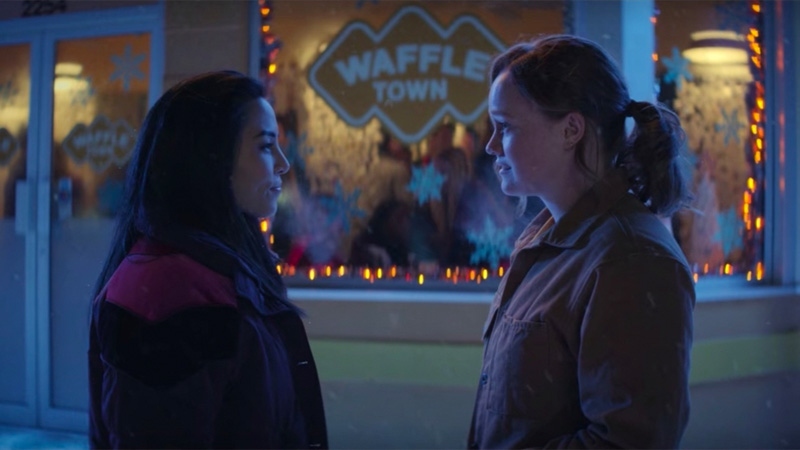
“The inclusion of a queer romance in a film like this is exciting enough on its own. But what makes it all the more exciting is both Hewson and Akana are queer in real life! Hewson is non-binary and gay and Akana is bisexual. They’re both so good in their roles, bringing their charm and authenticity. Most mainstream movies continue to cast straight actors in queer parts, so this casting in the most mainstream genre is pretty revolutionary.” — Drew Gregory
Sister Aimee (Amazon)
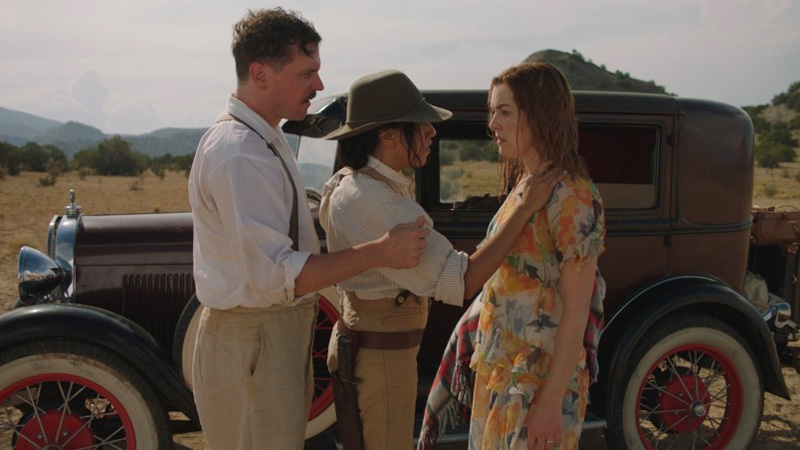
“There’s no evidence that Aimee Semple McPherson was queer. But there’s no evidence that a lot of historical figures did a lot of the things they do on screen. Buck and Schlingmann are the storytellers here and there’s no reason they shouldn’t inject some subtle queerness into this already enigmatic life. The Kennys of the world have long been telling stories through their lens and there’s nothing more truthful about that perspective. Aimee was a remarkable woman in the truest sense of the word, and she deserves this movie made with equal parts reverence and irreverence.” — Drew Gregory
The 50 Best Lesbian, Queer, and Bisexual Movies of the Decade
I just want you all to feel seen.
It’s corny, it’s cliché, but it’s true. I want every lesbian, every queer woman, every non-binary person, I want us all to know that our stories matter, and that they’re being told, and that they’ve always been told, and that we deserve even more.
Whenever I’ve said to someone I was working on a Top 50 Lesbian+ Films of the Decade list I’ve been met with the same question: Were there really that many?
The answer: Yes, of course.
But there’s a follow-up question worth asking: If there were that many lesbian movies, why does it feel like there weren’t?
The fact is most of the films about us — and especially the films by us — do not get the attention they deserve. They don’t get the budgets they deserve, the awards they deserve, the acclaim they deserve. But that’s why we exist — that’s why Autostraddle exists — because while we may not be able to fund the trans lesbian action movie of your dreams, we can remind you of the rare queer films that joined the zeitgeist and we can bring your attention to all the others you may have missed.
The “short” list voted on by the entire Autostraddle team was 171 films. Voting took place in two parts: Everyone gave each film they’d personally seen a rating out of ten stars and then chose their top five favorites. The overall ratings were used to put together one list and the favorites were used to form another. Then those two lists were combined for what you see here. Films that had many people rate them were also weighted slightly higher on that list.
The intention of this algorithm was to prioritize films featuring underrepresented groups while still not discrediting popularity. I wanted this list to bring attention to our favorite underdiscussed movies, but also for it to act as a definitive reflection of the decade in lesbian+ cinema.
It’s worth noting how many of the films allowed us to actually tell our own stories. Here are a few stats for you:
+ 31/50 films feature out queer women or non-binary actors in major roles
+ 26/50 films were directed or co-directed by queer women or non-binary directors
+ 11/50 films were directed or co-directed by queer women or non-binary directors of color
There are four queer directors who each have two films on this list: Desiree Akhavan, Ruth Caudeli, Madeleine Olnek, and Dee Rees. There have always been queer women auteurs (*cough* Dorothy Arzner *cough*) but it’s exciting that there are now multiple filmmakers getting the access to build extensive filmographies of explicitly queer cinema.
These numbers highlight that nobody is better equipped to tell our stories than we are. Hopefully, the next decade brings less of a divide in regards to budget, genre, and awards — in this decade the higher the budget, the more likely the movie was directed by a cishet man. I also hope the next decade has more movies with queer characters who are POC, trans, and disabled.
Well, without further ado – here is the Autostraddle Best Lesbian+ Films of the Decade.
50. Women Who Kill (dir. Ingrid Jungermann, 2016)
As a fan of The Slope, I wasn’t sure what to expect when I found out Ingrid Jungermann’s debut feature was going to be a thriller. How would her comic slice-of-life sensibility fit within a heightened genre? Turns out – very, very well. Still as funny and sharply observant as her other work, Women Who Kill, captures the horror of trust issues. Sheila Vand is excellent at one moment being mysterious, alluring, and possibly murderous and the next moment just being a troubled woman trying to fall in love. Her contrast with Jungermann is really fun to watch, and, ultimately, rather heartbreaking. It works as a comedy, it works as a thriller, and it works as an emotional drama about a doomed queer romance. – Drew Gregory
49. The Summer of Sangaile (dir. Alante Kavaite, 2015)
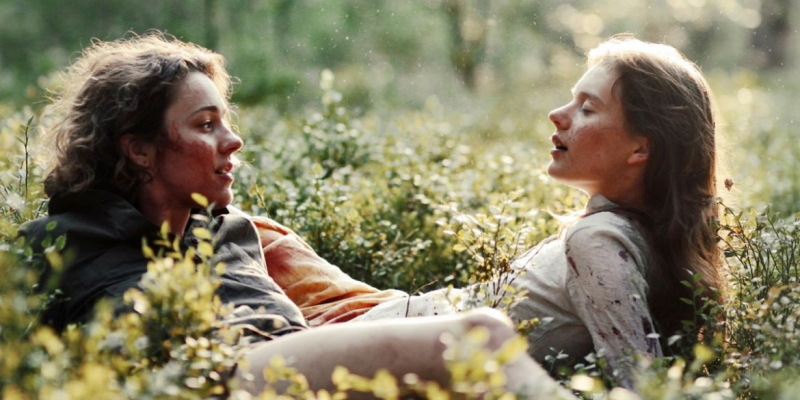
Alante Kavaite’s coming-of-age story about a queer teen obsessed with airplanes – and scared of heights – is deeply angsty and breathtakingly gorgeous. The lighting, the aerial photography, the costumes, the score, all make for a sensory experience that places you in the troubled mind of Sangaile. It’s a lovely tribute to the power of feeling truly seen, and an honest reflection on the limitations of love. Sangaile’s self-harm is handled with a fascinating balance of weight and levity. The film doesn’t minimize her mental illness or the severity of her actions, but it also never judges her. She’s a complicated person, right in the middle of the worst period of her life, and she’s trying. Julija Steponaityte and Aiste Dirziute are great as Sangaile and her new love, Auste. They have a chemistry that never quite clicks as we the audience understand their attraction and the limits of their teen summer romance. Sometimes love isn’t meant to last, but the few months we spend with a person changes who we are – who we can be – forever. – Drew Gregory
48. Wild Nights with Emily (dir. Madeleine Olnek, 2018)
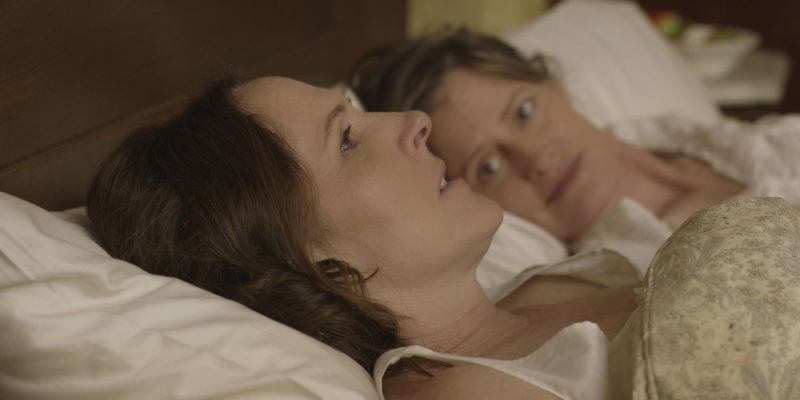
Emily Dickinson’s queerness is really having a renaissance right now! But before Apple TV’s brilliant (and awesomely weird) TV series starring Hailee Steinfeld as the beloved poet wooing her brother’s girl with her poetry and wit, Molly Shannon starred in an even queerer and weirder adaptation of Dickinson’s life. Writer/director Madeleine Olnek’s brand of quirk is singular and she brings all of it to bear on Wild Nights With Emily, challenging not only the deliberate erasure of Dickinson’s gayness from the historical record, but also the idea that Dickinson was a dour, virginal spinster. In Olnek’s view, and in Shannon’s hands, Dickinson is no angsty recluse; she’s silly and compassionate and brilliant and warm and wise and full of life and wonder. Wild Nights is both ridiculous and completely resonant. Truth told just the way Dickinson liked it — at a slant. – Heather Hogan
47. Grandma (dir. Paul Weitz, 2015)
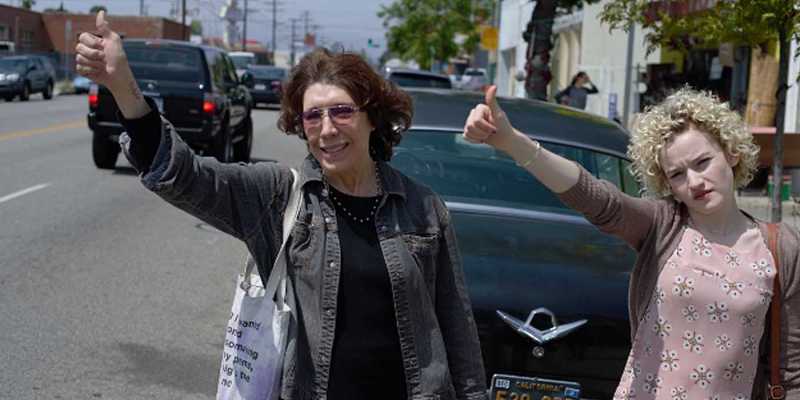
I can’t really explain why I love Grandma as much as I do. Actually, that’s not true — I absolutely can, and I can do it in two words: Lily. Tomlin. If you’re a fan of the lesbian comedian, then you absolutely cannot miss what’s perhaps her finest role. In Grandma Lily Tomlin plays, well, a lesbian grandma (obvious, I know!) who abruptly puts everything on hold to help her granddaughter with a life-altering favor. It’s chopped full with Tomlin’s signature quirky warmth, but also there’s a seriousness underpinning her performance that you don’t always get to see in her other work. Did I mention it also has a guest starring role for Laverne Cox? If you ask me Cox’s comic timing is criminally under appreciated, and in Grandma it’s in fine form. – Carmen Phillips
46. Annihilation (dir. Alex Garland, 2018)
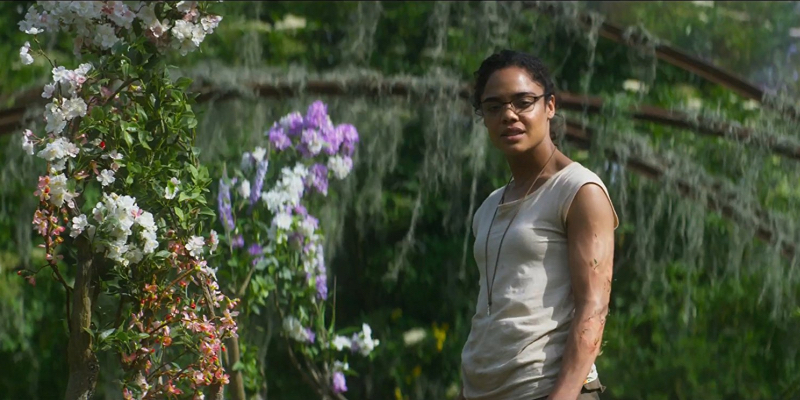
Annihilation mutates several times over the course of its sci-fi-horror story, jumping around in times and tones but ultimately spinning an unsettling and gorgeously constructed narrative on identity and self-destruction. At its climax, the film delivers one of the most haunting, dialogue-free film sequences of the decade, one that lends itself to myriad interpretations. Its score is phenomenal, as are its performances, which ground the movie despite all the sci-fi weirdness unfolding throughout it. Tessa Thompson and Gina Rodriguez bring specificity and stakes to what could easily be set-dressing characters, and the latter harnesses a major tonal shift halfway through the movie with a classic manic horror performance. – Kayla Kumari Upadhyaya
45. Kiss Me (dir. Alexandra-Therese Keining, 2011)
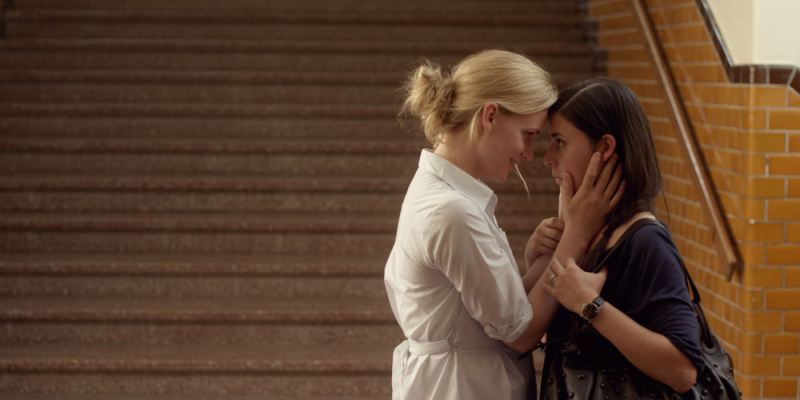
Kiss Me is the kind of lesbian movie we as a community tend to mock. A woman engaged to a man suddenly falls for a lesbian she’s tangentially related to? It’s become its own niche cliché. But the writing and performances in Kiss Me elevate it beyond its premise, or, rather, show why this premise is so attractive to filmmakers in the first place. There’s a truth to Mia’s confusion and Frida’s impatience. The situations that are usually used as plot hurdles instead deepen the characters. Who is this queer person so deep in the closet? Who is this other queer person falling for her? Should they even be together? This is a fun and sexy romance that doesn’t require you to turn off your brain – but might turn it on. – Drew Gregory
44. Can You Ever Forgive Me? (dir. Marielle Heller, 2018)
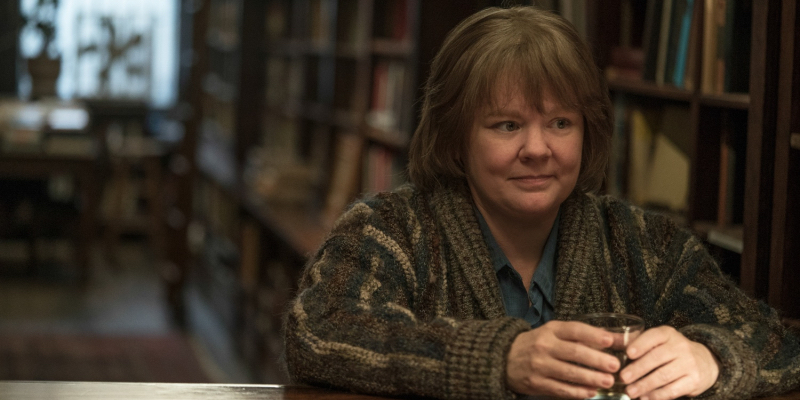
More movies should be as subdued as Can You Ever Forgive Me?, a charming comedy about an incredibly un-charming, real-life protagonist played by Melissa McCarthy in one of the best, most severe roles of her career. The movie lets biographer Lee Israel be acerbic in the way only tortured male artists usually get to be, but it also acknowledges the consequences of her intimacy issues, especially when it comes to her ex-girlfriend (Anna Deavere Smith), new love interest (Dolly Wells), and friend/co-conspirator (Richard E. Grant). Can You Ever Forgive Me? touches on financial anxiety, sexism in publishing, and forgiveness in its sharp but subtle storytelling where the relationship dynamics do the heavy-lifting. It’s a heist movie that feels incredibly low-stakes, and that’s part of its charm. – Kayla Kumari Upadhyaya
43. Atomic Blonde (dir. David Leitch, 2017)

It’s no secret that the plot of Atomic Blonde is incredibly unhinged and, frankly, incoherent, but I’m a true believer in the fact that queer women should be visible in all film canons, and that includes shitty action movies that are nonetheless thrilling, stylish, sexy, and impecably choreographed. Hand-to-hand combat scenes don’t get much better than this, which makes sense given that its director is a stunt performer and coordinator. Atomic Blonde is a rare action movie that’s aware of its characters’ bodies not just in terms of them being capable and attractive but as being fallible, too: How often do we get to see bodies tire and bruise in action? The film falls prey to all sorts of tropes (including That One), but a queer love story that gets to be emotional and hot woven into a flashy world of spy thrills is still, unfortunately, remarkable. And yes, Charlize Theron’s many coats worn in the movie deserve accolades on their own. – Kayla Kumari Upadhyaya
42. Hearts Beat Loud (dir. Brett Haley, 2018)
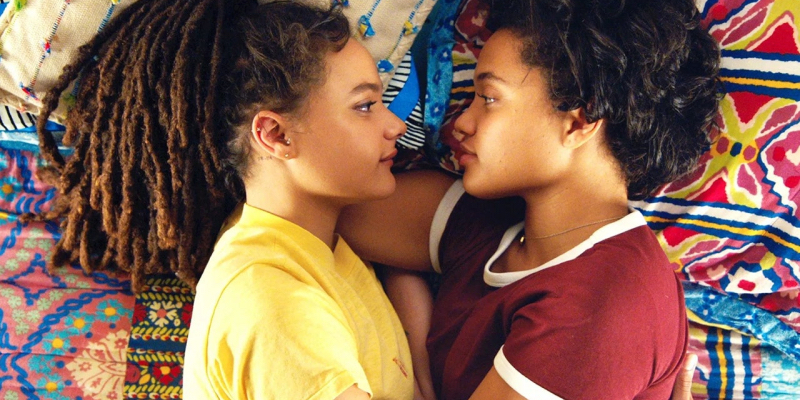
So many coming of age stories about black girls, and about lesbians, so especially about black lesbians, are rooted in trauma. What left me positively enamored about Hearts Beat Loud is that it’s bursting with love, support, and joy. Queer actress Kiersey Clemons lights up the screen as Sam, who’s tackling her last summer before leaving for college and her first real girlfriend, Rose (played by yet another queer actress, Sasha Lane). Their love isn’t marked by parents kicking anyone out of the house, or painful coming out stories. They’re just two weird teenagers who love indie rock music and each other. It’s refreshing, and sweet, and in my mind — a perfect love story, wrapped inside an otherwise imperfect indie film. – Carmen Phillips
41. Summertime (dir. Catherine Corsini, 2015)
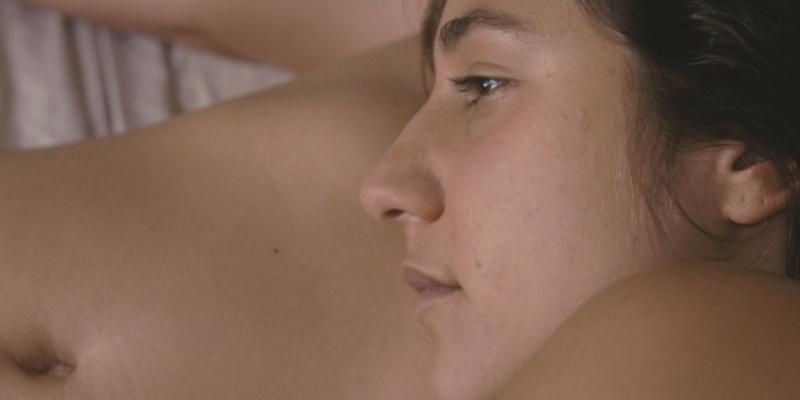
The first time I saw this movie I thought I’d seen a masterpiece. And then I was like wait a minute calm down you’re just horny. Izïa Higelin is one of the hottest people to ever people and watching her fall under the spell of Cécile de France’s confident teacher/activist obviously made me feel things. But maybe that’s enough to qualify it as a great movie! Am I parody of myself that I love the movie about French lesbians bonding over feminism? Yes. But it’s not like the movie isn’t also good in addition to being the best thing ever. It’s gorgeously made and well-acted and does a wonderful job capturing a moment in time and and and – okay fine just let me be horny. – Drew Gregory
40. Dope (dir. Rick Famuyiwa, 2015)
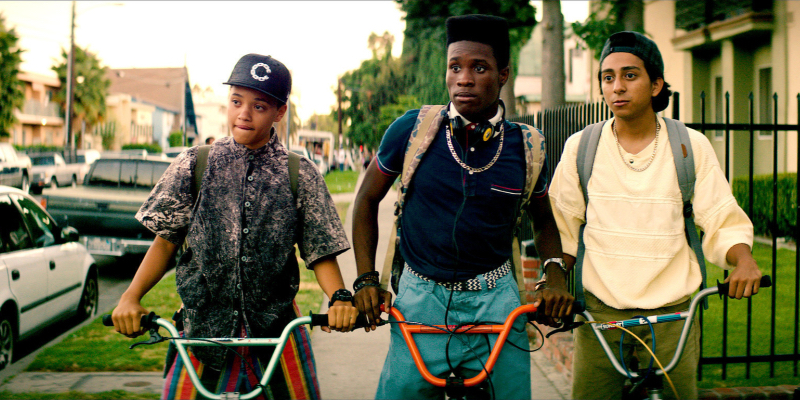
Dope is one of my all-time favorite movies, lesbian or otherwise. It’s one of the tightest scripts of the last decade. The teen heist comedy is unexpected and funny and surprisingly thrilling — which is a lot of compliments from me about a movie with a teenage boy as its protagonist! On top of all those delights, there’s teenage Kiersey Clemons as Diggy, the protagonist’s lesbian best friend. Even at her young age in the film, you can tell she’s already a natural on screen. She steals the camera’s focus without even trying. Also, it’s worth mentioning, the black masc lesbian costume styling in this film? Top notch. – Carmen Phillips
39. The Girl with the Dragon Tattoo (dir. David Fincher, 2011)
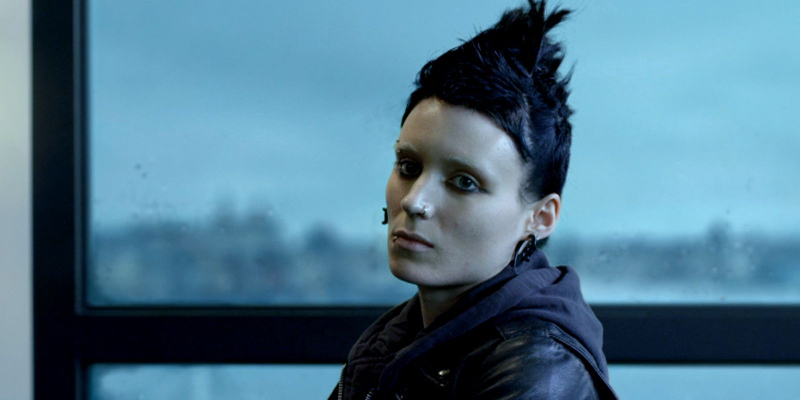
There have been other female action heroes — from Pam Grier’s Foxy Brown to Gal Gadot’s Wonder Woman — but few have captivated audiences quite like Lisbeth Salander. Starting with Stieg Larsson’s opening salvo in the Millenium series to the Swedish film to the 2011 David Fincher adaptation, I’m hard pressed to recall another female action hero that’s generated that much fervor on her own.
Stepping into Lisbeth Salander’s boots is an unenviable task but Rooney Mara rises to meet the challenge. She is astounding as the pierced, bisexual, tattooed hacker recruited by disgraced journalist Mikael Blomkvist (Daniel Craig) into investigating the Vanger family. Fincher’s decision to structure the film into five acts — rather than the usual three — requires Mara to carry more of the film’s load: balancing being the badass who fuels the movie’s action sequences and enigmatic enough to keep your attention during Dragon Tattoo‘s procedural parts. She earned every bit of that 2012 Oscar nomination. – Natalie
38. Eva + Candela (dir. Ruth Caudeli, 2018)
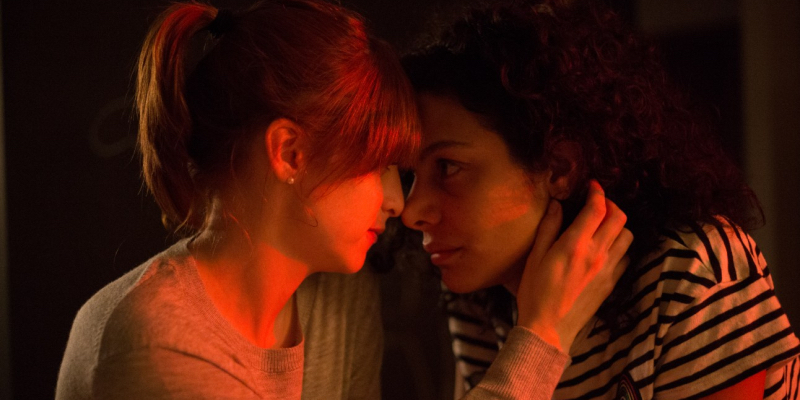
There certainly is no shortage of lesbian romances where things don’t work out – internalized homophobia, externalized oppression, sickness, murder, suicide. But bless Ruth Caudeli’s debut feature for showing our heartbreak the way it usually occurs in all its messy emotions. Most queer women don’t break up because of queerness. Most breakup because God fucking damnit sustaining a relationship – years with another person! years! – is very, very difficult. Silvia Varón and Alejandra Lara are incredible as Eva and Candela as we watch them fall in love and out of love and back in love and out of love, trying so hard to make things work, because they love each other. Truly, they do. It’s a relatable and painful movie that celebrates love in all its impossibilities. And it’s a delightful announcement of a new queer filmmaker who has decades of great films ahead of her. – Drew Gregory
37. Bit (dir. Brad Michael Elmore, 2019)
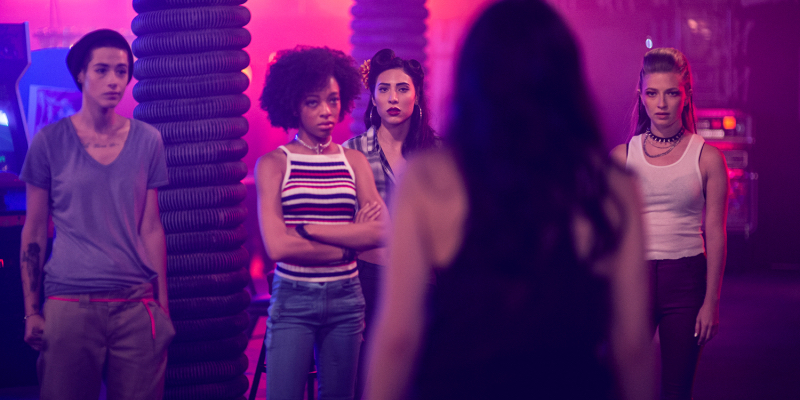
If you’re not a trans lesbian, like I myself am so lucky to be, you may not fully be able to grasp the rarity of this low-key vampire movie. There are only two trans women leads on this list and the other one ends up with a man. While the decade has shown incredible progress for cis lesbians, trans lesbians are still more or less non-existent on our screens. And yet, there is Bit, where Nicole Maines joins a group of lesbian separatist vampires! It’s fun, it’s sexy, and it’s made with a casual touch never weighed down by the uniqueness of its representation. It’s not a perfect movie, but I treasure its existence, and I hope it gets a proper release soon. I’ve never seen my romantic life on a movie screen. Not fully. But there’s a scene in Bit that comes the closest; that doesn’t require me to ignore my transness or my gayness. The only difference between this movie’s meetcute and my own is usually when I kiss someone it doesn’t end with them sinking their teeth into my neck. Usually. – Drew Gregory
36. Hooters! (dir. Anna Margarita Albelo, 2010)
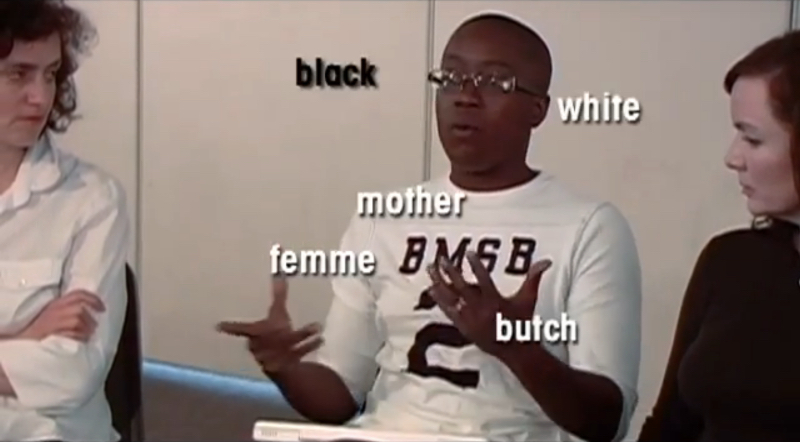
Part behind the scenes featurette, part treatise on the state of lesbian cinema, Anna Margarita Albelo’s making-of documentary about Cheryl Dunye’s The Owls is a remarkable work of art in its own right. With sharp interviews and cinema verité gold, Albelo captures a debate around how we present ourselves as a community. Generational divides abound in discussions of gender, sexuality, and filmmaking. Queer culture shifts so rapidly it’s a treat to have this document of a specific period of time.
After six years way from filmmaking, The Owls was a return for Dunye, an attempt to prove that independent lesbian cinema was still possible in a landscape increasingly focused on respectability. But it’s Albelo’s examination of the moment that proved this to be true. Her signature sense of humor and formal recklessness combined with insight from Dunye, Guinevere Turner, and a very young Rhys Ernst, make for the rare movie about movies that’s really about so much more. – Drew Gregory
35. Lyle (dir. Stewart Thorndike, 2014)
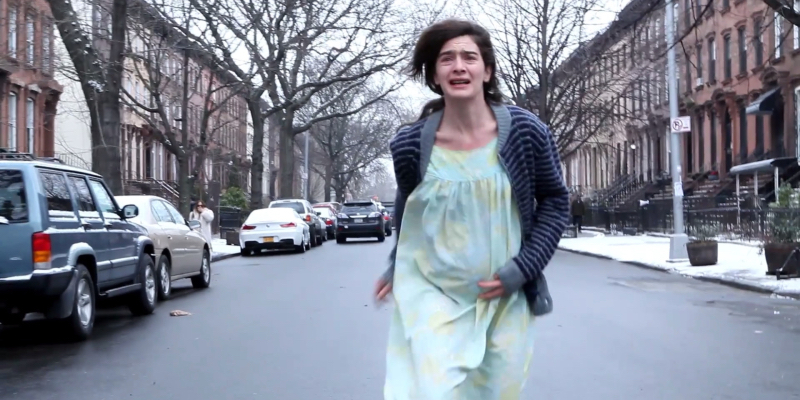
It’s unnecessary to say that Stewart Thorndike’s fierce horror movie is more than its pitch – what if Rosemary’s Baby was gay? It’s unnecessary, because the film doesn’t settle in that premise and it doesn’t go beyond it. Instead it dives deep into the thematic mess that question raises. I’m still not sure what the film is saying, and I’m not sure it’s really saying anything. It’s just asking questions we don’t ask; expressing feelings often left unexpressed. And as an experience it’s an absolute ride. It’s a truly horrifying movie with a desperate central performance from Gaby Hoffman and an ominous supporting performance from Thorndike’s ex Ingrid Jungermann. Stewart Thorndike discussed wanting to make a trilogy of horror movies and I am very upset that she hasn’t been given the money to do so! Somebody give Stewart Thorndike some money! It’s been five years and I want more work from her! Are you, dear reader, a film financier?? If so, give Stewart Thorndike money right this minute! – Drew Gregory
34. Codependent Lesbian Space Alien Seeks Same (dir. Madeleine Olnek, 2011)
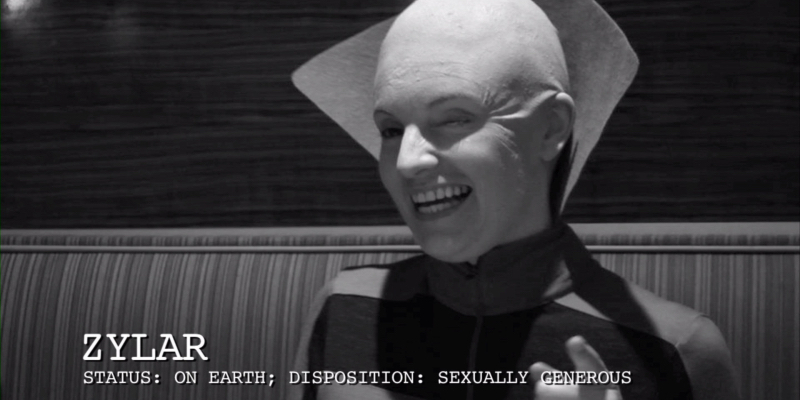
This bizarre and hilarious comedy is a tribute to lonely lesbians across the galaxy. Following the pursuits of three aliens sent to Earth to get their hearts broken so they’ll stop feeling so much, Codependent Lesbian Space Alien Seeks Same is painfully relatable even amidst all its silliness. The movie shows that there’s someone out there for every misfit – you may just have to journey to a new planet to find them. Most of the genre films on this list are not made by queer women, so it’s a delight that Olnek leaned into her budgetary restraints showing all you really need for sci-fi is commitment. And this sure does have commitment! – Drew Gregory
33. In Between (dir. Maysaloun Hamoud, 2016)
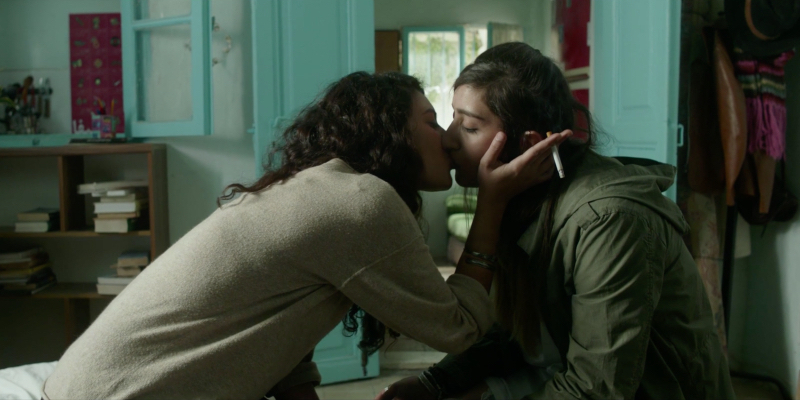
I love this movie with a specific passion even my excitable self rarely feels. There’s just something about its trio of stubborn women – Leila, Salma, and Nour – that feels so familiar to me, facets of my own personality, pieces of others I admire. It’s such a gift to spend time with these people watching them push against their oppression finding love and connection in partners, each other, themselves. The word feminism is thrown around a lot of in film criticism these days, but Hamoud’s film feels feminist in a pure and personal way I rarely see. This is a film about the occupation of Palestine, about patriarchy, about homophobia, and it is a film about surviving. That doesn’t mean simply living through the day – though sometimes that’s certainly all we can manage – but dancing and eating and fucking and loving. Tell the assholes to fuck off and look hot while doing it. Care for each other when it’s all too exhausting. I’m so grateful to Hamoud and the lead actresses – Mouna Hawa, Sana Jammelieh, and Shaden Kanboura – for making such a remarkable film that I’m certain will only grow in esteem in the decades to come. – Drew Gregory
32. Black Swan (dir. Darren Aronofsky, 2010)
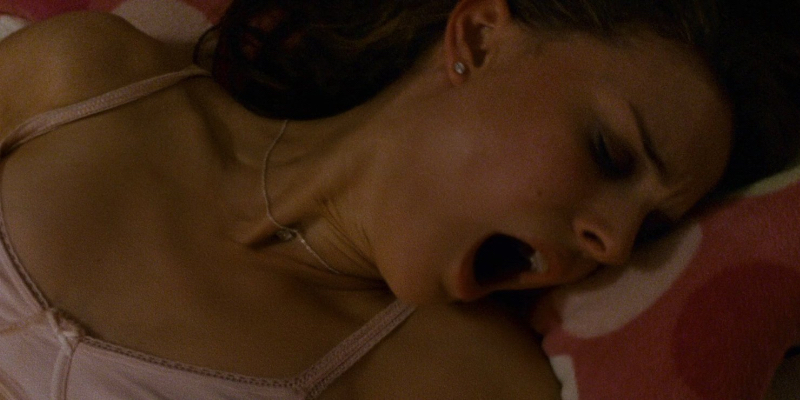
Frenetic yet vulnerable, sexy yet haunting, Black Swan is a nightmarish ballet of mommy issues, power struggles, and polarities. It’s the classical ballet Swan Lake — on poppers. Nina (Natalie Portman) and Lily (Mila Kunis) diverge in their approach to the artform: Nina is too technical and rigid for the likes of choreographer Thomas (Vincent Cassel), while Lily is an unpredictable firecracker. When Thomas intentionally shatters boundaries between the professional and the personal, Nina unravels, unsure of what’s real and what isn’t. Use of the fantastic in the movie is just right — sparse enough to shock but a consistent thread in the movie’s visual storytelling. Some of its more horror-leaning images are the kind that stay with you for years. – Kayla Kumari Upadhyaya
31. Thelma (dir. Joachim Trier, 2017)
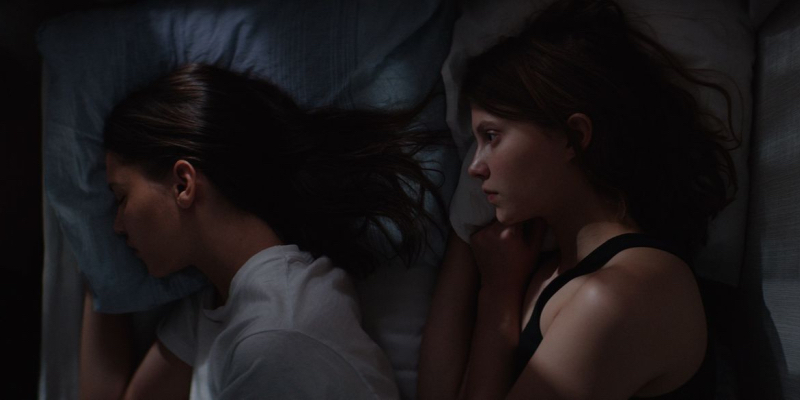
Thelma’s magic lives entirely in its camerawork and editing. Mesmerizing visuals make up for the wobbly plotting and provide a clear throughline. Thelma wraps an X-Men-like narrative in avant-garde horror dressings, and the result is quite lovely. Raised by oppressive, strictly Christian parents, Thelma’s first taste of kindness and acceptance comes from her fellow classmate Anja, whose affection sets off a sexual awakening for Thelma. Her burgeoning supernatural abilities reflect her trauma but also her strength, and there are touches of Carrie throughout the Norwegian-language film. It’s a slow-burn horror about desire and control, and it ends on a very dark, twisty note. – Kayla Kumari Upadhyaya
30. Boy Meets Girl (dir. Eric Schaeffer, 2014)
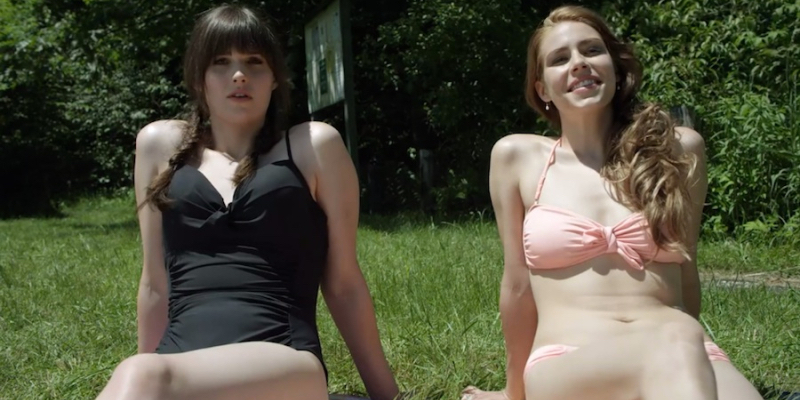
People ask me about dating as a trans woman with a grimace on their face. Their tone – or, on occasion, their words – suggest I might always be alone. This is absurd, of course. Trans women have been desired and loved since we’ve existed which is forever. But it’s true that there are minimal examples of this in media. Looking at the landscape of trans representation – especially in 2014 when Boy Meets Girl came out – one might think we can only be sexless or sex objects.
This is all to say – the saccharine romance of Boy Meets Girl is a fucking gift. I love the messy love quadrangle Ricky gets herself into and I love that it all gets wrapped up in a nice bow. I don’t even mind that she ends up with the boy! Well, I don’t mind it much at least. We still get a sex scene – A SEX SCENE – between Ricky and Francesca that’s sweet and silly and really, really hot. But beyond representation, the movie works as well as it does because Michelle Hendley is an incredible actor. She is a full-on movie star in appearance and charm and endless talent. Considering the number of cis queer women filmmakers who have made work this decade, it’s just a bit disappointing that the only trans women leads on this list were brought to us by two cis straight men. Cast a trans woman in your semi-autobiographical cliché lesbian romcom! I promise you a hungry and grateful audience. – Drew Gregory
29. Signature Move (dir. Jennifer Reeder, 2017)
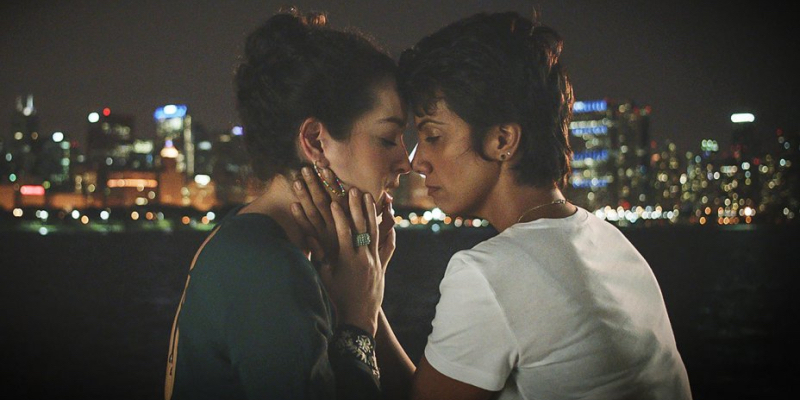
Zaynab, a 30-something Pakistani Muslim lesbian from Chicago who’s been living with and taking care of her recently widowed mother, finds herself falling quickly and unexpectedly in love with Alma — the Chicana bookshop owner whom she meets one night at a bar. Of course, Zaynab’s mother doesn’t even know she’s gay, and Alma has little interest in dating someone in the closet, so complications arise almost right away. There’s a lot about this movie that sounds predictable when you write it down, but on film it’s captivating. A lot of that has to do with not only the cultural authenticity and attention to detail, but also Zaynab’s personal obsession with Lucha-Style Mexican wrestling. I promise you’ve seen nothing like it. (Oh by the way, it was made by lesbian Pakistani filmmaker Fawzia Mirza, so when I say that authenticity and unexpected voice is at the core of this film, I absolutely really mean it.) – Carmen Phillips
28. Daddy Issues (dir. Amara Cash, 2018)

There is an unlikely love triangle at the center of Amara Cash’s debut – a young artist, her influencer crush, and the influencer’s drug-addicted sugar daddy. But that’s only the beginning. This is a bonkers movie filled with bright colors, pop montages, and ever-heightening emotion. It also happens to be one of the most adorable movies on this list. That’s right, amidst all the insanity, and all the sex, is the story of a young woman trying to find herself amidst first love. Sweet doesn’t have to mean safe. Sweet doesn’t have to mean respectable. Straight people don’t get to determine how we tell our stories and it’s a pleasure to watch Cash’s declaration of this fact. A first kiss can be magical. But so can a first fingering. – Drew Gregory
27. A Date for Mad Mary (dir. Darren Thornton, 2016)
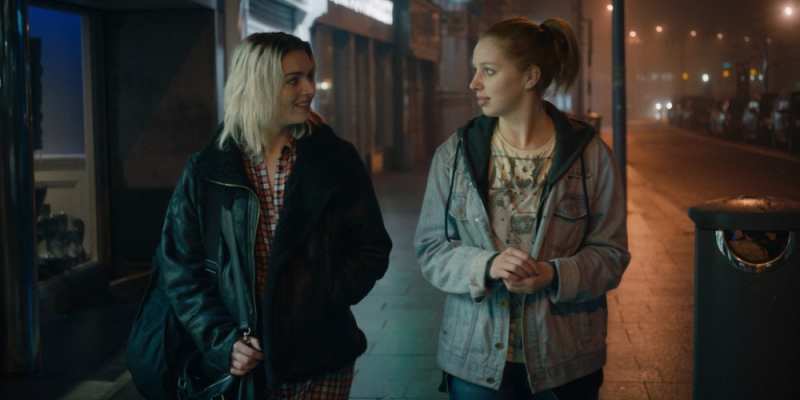
If you combined all my adolescent crushes into two people it would be A Date for Mad Mary romantic leads Seána Kerslake and Tara Lee. But that’s not the only reason I love this Irish romantic dramedy. I love this movie for its heart and its humor and its totally fresh take on the in love with your straight best friend trope. Kerslake’s titular character has no idea she’s in love or that she’s even queer. She just thinks she’s frustrated with her soon-to-be-married friend Charlene for being so absent, especially when Mary just spent months in prison. The fact is Mary doesn’t know who she is. She doesn’t know why she’s so angry, why she keeps fucking up and hurting people, and why she can’t find a date to this wedding. It doesn’t all come back to her queerness – but a lot of it does.
Enter videographer/singer Jess. The chemistry is immediate and even if she’s not sure why, Mary just really likes being around her. Unfortunately, Mary keeps going back to Charlene. Mary’s growth throughout the movie is strained and troubled, but Kerslake finds nuance in every moment. Mary becomes an easy character to root for even if you aren’t painfully attracted to her – which, again, to clarify, I am. – Drew Gregory
26. Shakedown (dir. Leilah Weinraub, 2018)
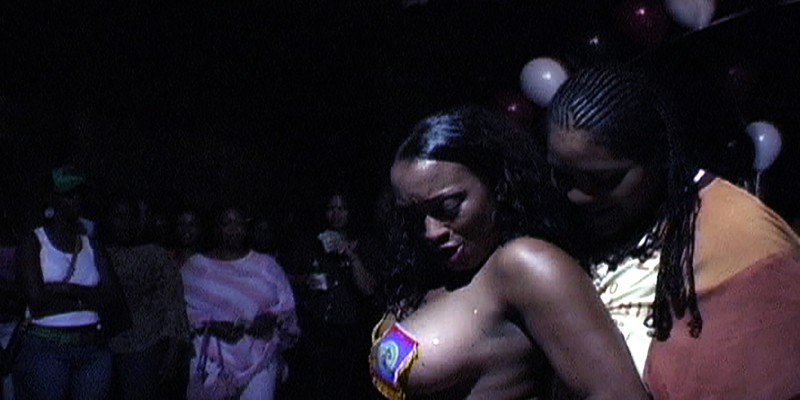
Shakedown is a documentary exploring early-aughts Los Angeles via the lens of the underground black lesbian strip club from which the film gets it name. For a documentary, which is a genre most often associated with dry facts on screen, it’s also deceptively seductive — playing with the same pulls of fantasy that dancers are also selling to their customers. It’s so incredibly sexy and you can’t take your eyes off the line up of both femme and stud performers on stage (or their lives behind the scenes once the music stops playing.) – Carmen Phillips
25. Bessie (dir. Dee Rees, 2015)
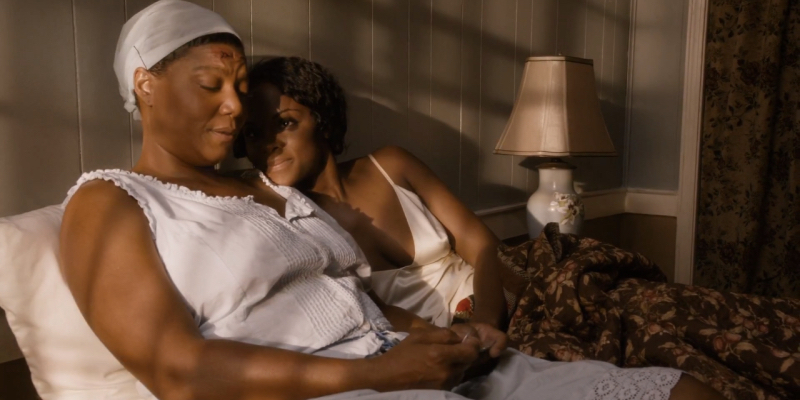
In 2002, Queen Latifah scored her first Oscar nomination for her turn as Matron “Mama” Morton in the film adaption of Chicago. For someone who had, until then, built a career primarily on sitcoms and an eponymous talk show, the Supporting Actress nod highlighted that Latifah was capable of so much more. In the years since few movies have given Latifah the opportunity to earn that critical acclaim but Bessie did. Latifah embodies blues legend, Bessie Smith, in some of the best work of her career…and for it, she earned an Emmy nomination (Best Actress in a TV Movie) and her first Emmy win (Best TV Movie).
Bessie is rare in its depiction of sexuality: showcasing both Bessie Smith’s bisexuality and polyamory and Ma Rainey’s (played by a scene stealing Mo’Nique) unapologetic lesbianism. – Natalie
24. Valencia (dir. various, 2013)
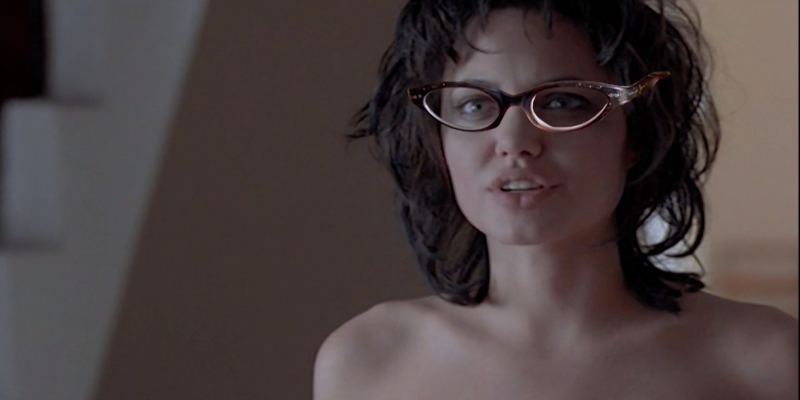
Billed as a “collaboration between a national community of queer filmmakers” this omnibus adaptation of Michelle Tea’s novel is one of the queerest, transest movies you’ll ever see. Produced by Clement Hil Goldberg and including directors such as Cheryl Dunye, Jill Soloway, and Silas Howard, this movie is the cinematic equivalent of a co-op. Every take on Tea’s work is so different, yet the sections complement each other so well. “Michelle” is played by a variety of cis women, a trans woman, a trans man, an animated character, and even Angelina Jolie in Gia but with Tea’s signature glasses superimposed. There’s a reckless freedom – a fluidity to gender and sexuality and art – that makes this a landmark work of queer cinema. — Drew Gregory
23. Disobedience (dir. Sebastián Lelio, 2017)
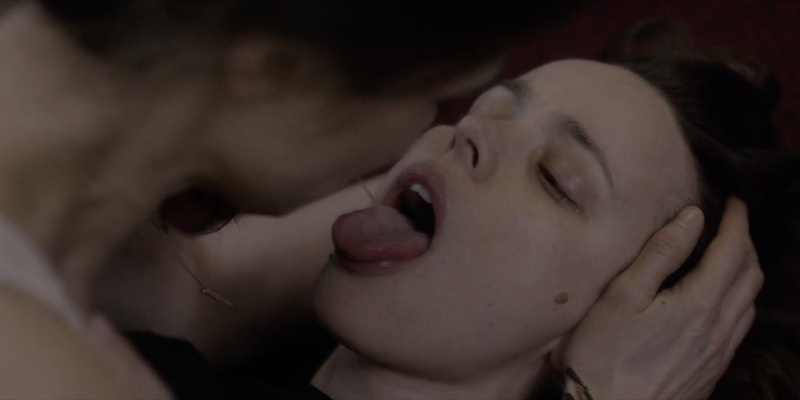
A quiet contemplation of faith, desire, and community, Disobedience looks at the disparate ways childhood lovers Esti (Rachel McAdams) and Ronit (Rachel Weisz) contend with the expectations forced on them in their Orthodox Jewish upbringing. Ronit left, and Esti stayed, and when a funeral brings Ronit home, she’s forced to face the ways she hurt those she left behind and grapple with why Esti remains. The reunion of two lovers sparks scintillating chemistry that is full of familiarity and a long history of emotions. Yes, the spitplay is hot, but the specific way it happens indicates that this is far from the first time it has happened, which makes it all the hotter. – Kayla Kumari Upadhyaya
22. Circumstance (dir. Maryam Keshavarz, 2011)
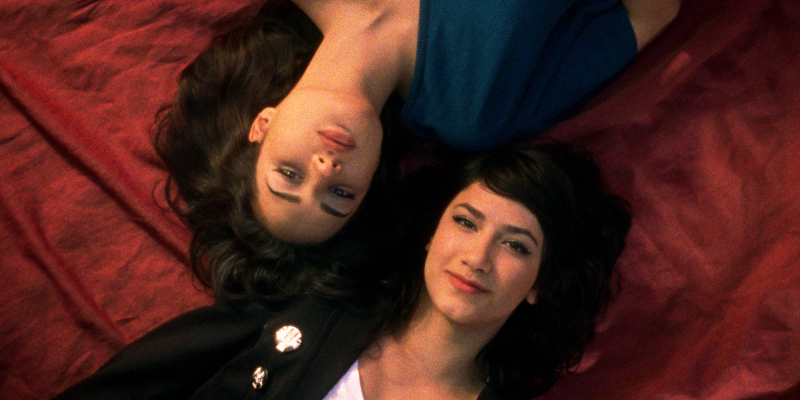
By the time I watched Nikohl Boosheri’s breakout role, I’d already fallen in love with her twice. First, in Meera Menon’s Farah Goes Bang where she plays a woman trying to lose her virginity on the John Kerry campaign trail, and then on the first season of The Bold Type where she plays the devastating Adena El-Amin who yanks Kat Edison out of the closet. There’s something about the easeful way Boosheri can alternate between seductive seriousness and goofy charm that is frankly cruel when paired with her physical beauty. Woah. Okay. I really must apologize to Maryam Keshavarz for getting too distracted by my horniness to give this legitimately masterful work of cinema its proper praise. But you know what? I don’t think she’d mind. Because one of the reasons Circumstance is so great is that even though it’s telling the harrowing story of homophobic oppression in contemporary Iran it never shies away from being sexy. The contrast Keshavarz is drawing between her characters’ private life and public life – the life they want versus the life they’re forced into – is emphasized by sex. It’s important we feel their intense want for each other, so it’s not merely theoretical when it’s taken away. Boosheri and her co-star Sarah Kazemy are so incredible and so beautiful and so electric together, it’s painful to watch them pulled apart. But more importantly does anyone know if Nikohl Boosheri is queer IRL and interested in dating a trans writer with curly hair and an encyclopedic knowledge of film? Asking for a friend. – Drew Gregory
21. Mosquita y Mari (dir. Aurora Guerrero, 2012)
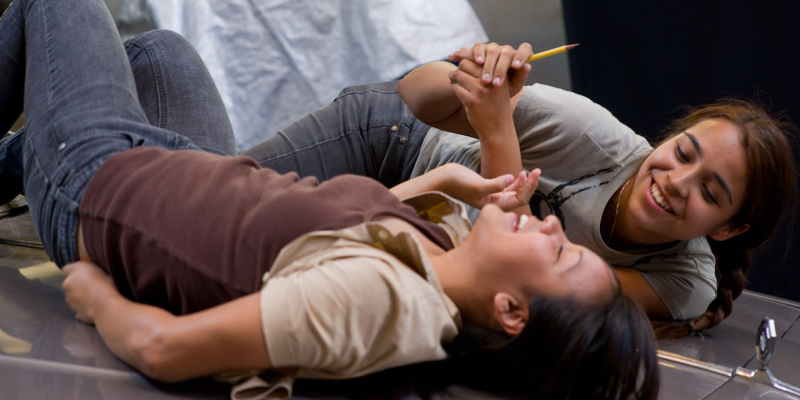
Mosquita y Mari is such a sweet retelling of kind of the romantic friendships that any nerd who’s ever had intense feelings towards “the bad girl” at school that you couldn’t quite explain, but consumed you nonetheless, will instantly relate to. Two Chicana high schoolers, Mari (Venecia Troncoso) and Yolanda (Fenessa Pineda), form a bond that’s more than friendship, but also stretches beyond the vocabulary they have at the moment for girlfriends or queerness. What makes Mosquita y Mari stand out is not only how authentic it is to Latinx and Chicanx families and coming of age (though that is a big part of it) — but also how the film finds a way to explore a queer teen romance that’s slippery and ambiguous. Not all of us come out clearly or in a “straight” line, Mosquita y Mari captures that experience like few others can.– Carmen Phillips
20. Blockers (dir. Kay Cannon, 2018)
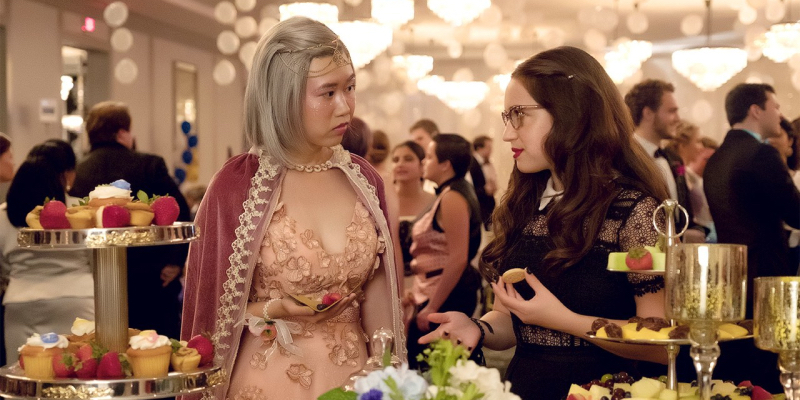
Blockers is a prime example of a movie harmed by the initial reactions to its promos, which made it seem like a sex-negative comedy about parents attempting to make sure their teen girls never have sex, when in reality, the film is the ideological opposite of that. Yes, these parents are overbearing, but the movie is critical of that, creating complex, convincing arcs for each of the parents as well as the teens. Its coming-out story is cute and grounded, featuring a very sweet father-daughter scene, supportive friends, and nerdy romance. The whole cast is great down to the tertiary characters. – Kayla Kumari Upadhyaya
19. A Simple Favor (dir. Paul Feig, 2018)
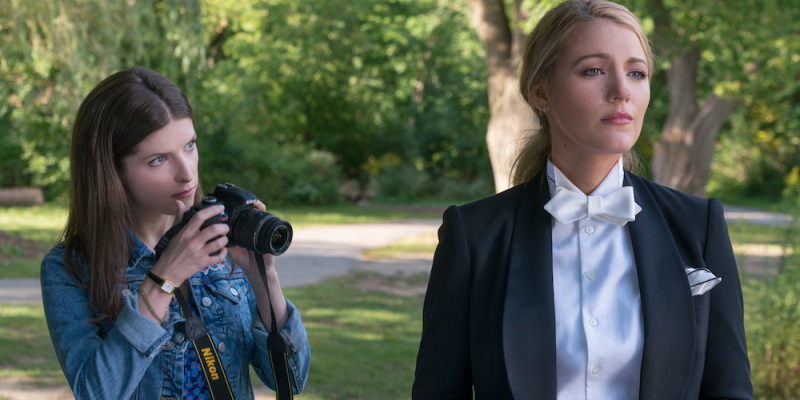
I saw this movie late and was so sure it had been hyped up by my friends to be gayer than it actually was so I was absolutely delighted to learn that it’s actually quite gay and not just in a “Blake Lively in a tux reminded me what being gay is all about” way. It of course was extreme and campy and truly wild but it was kind of the perfect metaphor for that feeling you get when you’re first realizing you’re into girls but can’t tell if you want to be her or date her or both and your brain is in an action movie while your heart is in a romance and you forget which way is up. – Valerie Anne
18. Booksmart (dir. Olivia Wilde, 2019)
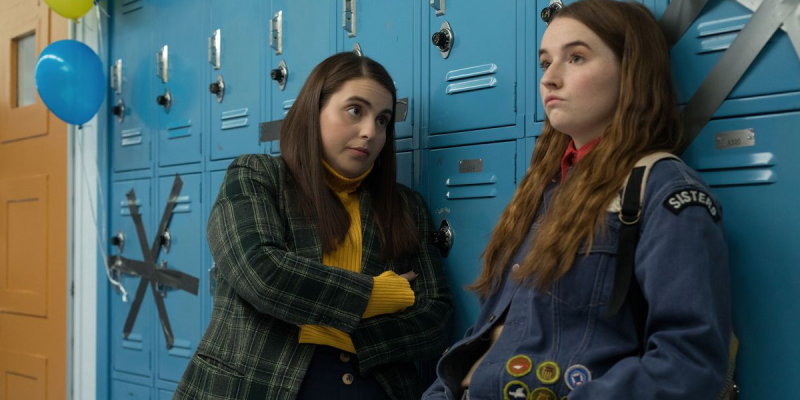
Booksmart is the buddy comedy I never knew I always wanted. Two teenage girls who love each other and are weird and goofy and smart and who aren’t fighting over boys or an mis-overheard sentence or a rumor. It was fun and funny and emotional and gay in that real, awkward, funny way that gayness sometimes is. I don’t remember the last time a movie made me laugh that hard for that long, and it’s always refreshing to watch female friendships that are so obviously and refreshingly written by women. – Valerie Anne
17. Rafiki (dir. Wanuri Kahiu, 2018)
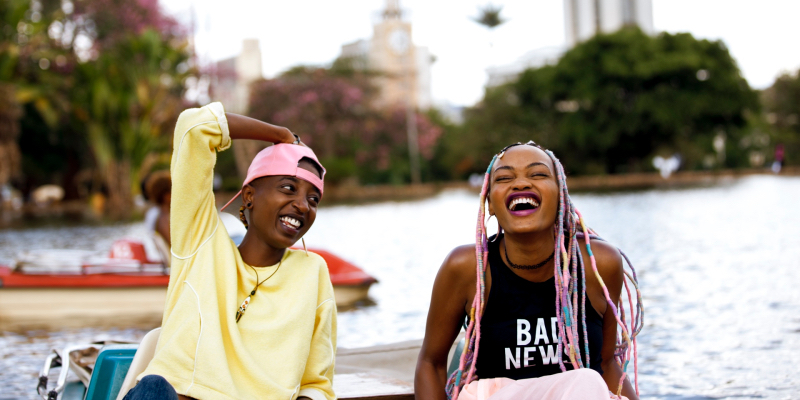
In her 2017 TED talk, Rafiki‘s future director, Wanuri Kahiu, ushered in a new genre of African filmmaking called “AfroBubbleGum.” She had grown tired of African films that dealt with the war, poverty, devastation and AIDS; instead, she wanted to “curate, commission and create art that celebrates fun, fierce and frivolous Africa.” A year later, her film Rafiki — the incredible adventure of two Kenya girls in love, if you will — became the first Kenyan film to screen at the Cannes Film Festival.
Even as the film grapples with Kenya’s homophobia, both on-screen and off, Rafiki fulfills Kahiu’s promise. AfroBubbleGum seeps out through the film’s use of bold color — watch the progression of pink! — and a vibrant soundtrack. But Rafiki‘s ultimate strength lies in its stars, Samantha Mugatsia and Sheila Munyiva, who are magnetic as Kena and Ziki. – Natalie
16. Suicide Kale (dir. Carly Usdin, 2016)
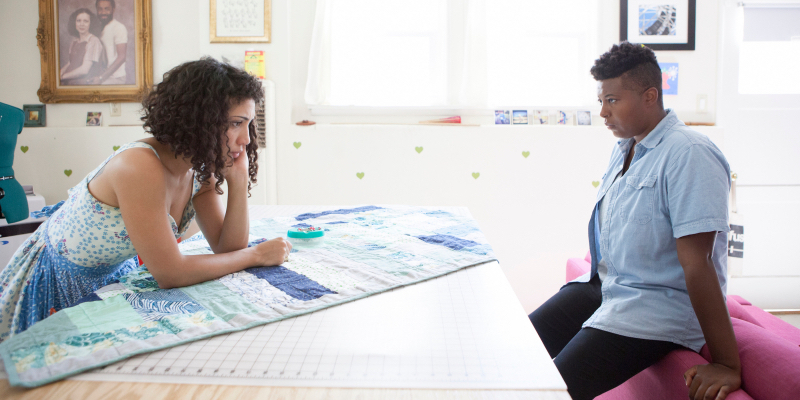
A dark comedy filmed in natural light, Suicide Kale is queer in its marrow, centered on two queer couples at different stages in their relationships and made by a team of queer creatives (Brittani Nichols penned the very funny, natural script, and Carly Usdin directs). It takes place over the course of just one home meal, but the suicide note its title references unearths relationship drama, tension, and complicated emotions that give way to a larger story about intimacy and trust. It feels special from start to finish. – Kayla Kumari Upadhyaya
15. Princess Cyd (dir. Stephen Cone, 2017)
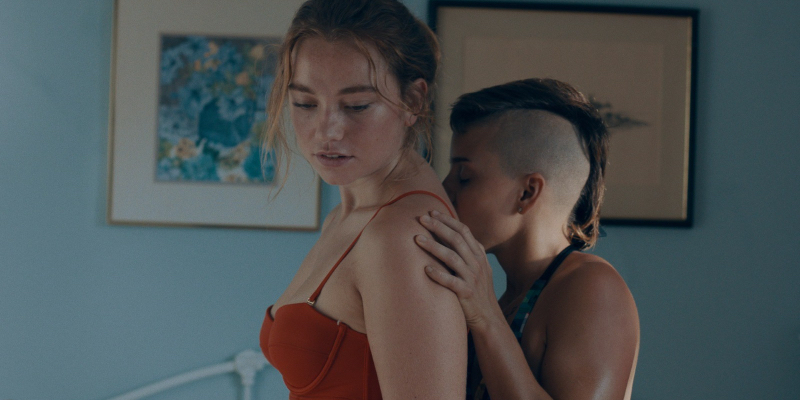
The first time I watched Princess Cyd I watched it again a few hours later. My girlfriend at the time got home from work and I was bursting with a certain chaotic enthusiasm anyone who knows me knows too well. I insisted it would just be easier to show her than try and articulate why I’d fallen so deeply and completely in love with this movie. So we watched it! And she understood! How could she not? Because Princess Cyd is so, so good.
The mostly non-existent plot is Cyd decides to spend a summer with her novelist aunt Miranda. As she explores her casually pansexual desires – most significantly with hottie barista Katie – she also reflects on the memory of her mother and learns to respect Miranda’s less sexual approach to life. The experience of watching the movie is like being invited to one of Miranda’s living room readings. The experience of watching the movie is like being a part of one of Cyd’s trysts. The experience of watching the movie is like remembering the best summer of your life that you didn’t even realize was the best summer of your life until years later you think back on a small moment that shouldn’t mean much and realize it means everything. Every time I open Netflix I hover the cursor over Princess Cyd tempted to sink back into its world. After texting one friend about this movie for the millionth time she said: “I feel like instead of an eternal flame at your grave should just be a speaker of your voice wailing PRINCESS CYD IS SO GOOOOOD on repeat. Forever.” Add it to my will. – Drew Gregory
14. The Favourite (dir. Yorgos Lanthimos, 2018)
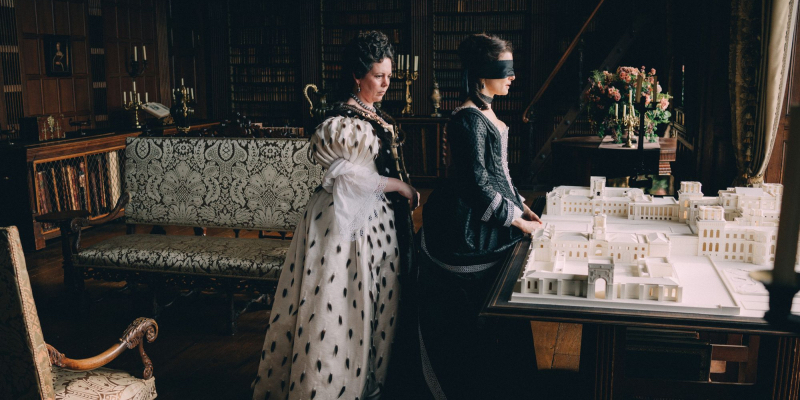
After I saw The Favourite for the first time, I spent the next 24 hours asking myself what in the world I’d watched. I don’t just mean director Yorgos Lanthimos’ surreality and fishbowl lenses that have been discussed at length by straight critics everywhere for the last two years. I mean also, “Did I just witness both Rachel Wesiz and Emma Stone fingerbang the Queen of England?” (Yes, and not even, in my opinion, in their best ever gay roles.) The other thing that really sets this period piece apart is how damn messy all three of its leads are. Lady Churchhill, Abigail, and The Queen herself. But even their nastiest actions are clearly motivated by a desperation to survive in a world that would otherwise strip them of all agency and leave them powerless and penniless. Lanthimos resists the seemingly collective urge of all male writers and directors to justify any of of his female characters’ worst behavior, or to punish them for it. No one even gets assaulted. He showcases the full humanity of three entire queer women who fuck and fuck over each other, and aren’t sorry about it. It seems so simple, yet remains revolutionary. – Heather Hogan
13. Mommy is Coming (dir. Cheryl Dunye, 2012)
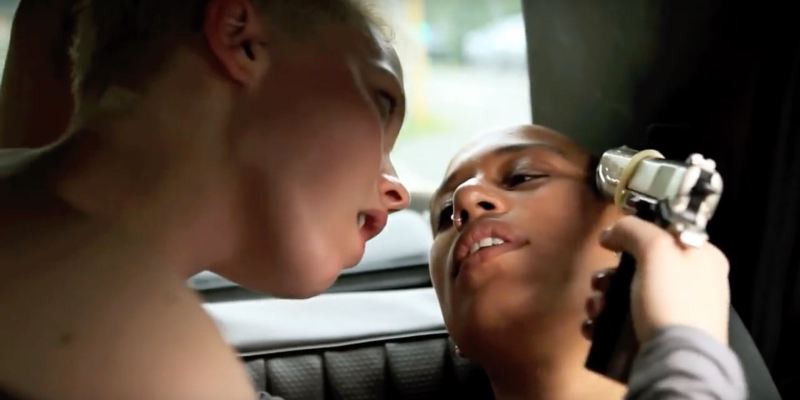
Dubbed the most heterophobic movie of all time by, well, me — Cheryl Dunye’s most recent feature film is a farcical odyssey through contemporary Berlin. With an irreverent sense of humor and committed sense of place, Dunye’s film (co-written with Sarah Schulman) is a sexy and silly good time. It’s a celebration of queer sex in all its forms and a thrilling reminder of Dunye’s importance to queer cinema and cinema in general. It begins with a condom covered gun, ends with some accidental incest, and stops at a sex club along the way. Mommy is Coming is a declaration that queer cinema doesn’t have to assimilate. There’s still a need for work that’s bold and reckless and made just for us. – Drew Gregory
12. The Daughters of Fire (dir. Albertina Carri, 2018)
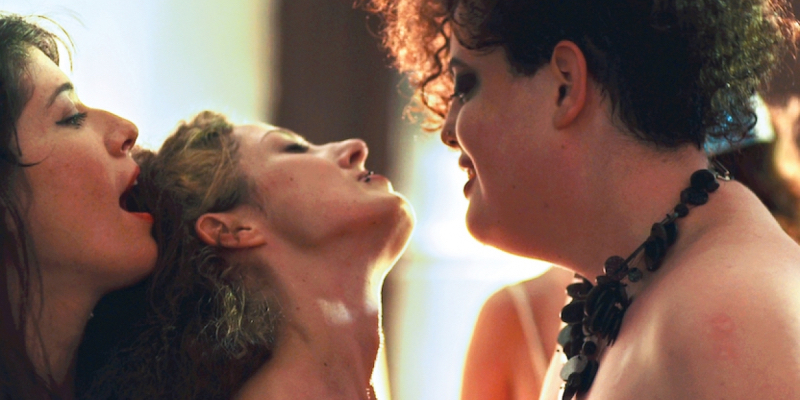
This exploration of the possibilities of pornography answers its own question. Can porn be truly feminist and truly queer? Yes, of course, and this movie is proof. Mostly plotless, this road movie through Argentina follows a lesbian couple as they add more and more queers to their traveling gang of lovers and friends. The cinematography is gorgeous. The narration is poetic. The sex is real and kinky and inclusive. It can be watched in a theatre as a work of art and it can be watched at home to get you off. It’s a treat to live in its utopic vision of queer community and pure desire. – Drew Gregory
11. Second Star on the Right (dir. Ruth Caudeli, 2019)
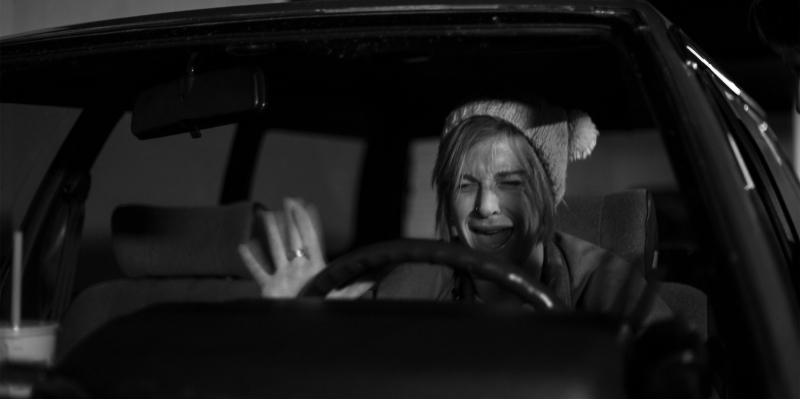
If Ruth Caudeli’s debut Eva + Candela (#38!) showed the promise of a great new filmmaker, her second film – a mere one year later – has the confidence of an artist fully formed. This story of an immature bisexual surrounded by rapidly maturing straight friends is bursting with formal experimentation. There is so much queer creativity in every frame illuminating Emilia’s inner life and various struggles. The black and white cinematography is subtly crafted and the moments of color are magnetic. Silvia Varón – Caudeli’s muse and, based on Instagram, IRL girlfriend – is so fucking good as Emilia. She’s hilarious and painful and always manages to keep us on her side. This is a messy movie in character and plot and style, but I say that as a compliment. Caudeli commits to the mess of her heroine and respects the messes we all sometimes make of our silly queer lives. – Drew Gregory
10. The Miseducation of Cameron Post (dir. Desiree Akhavan, 2018)
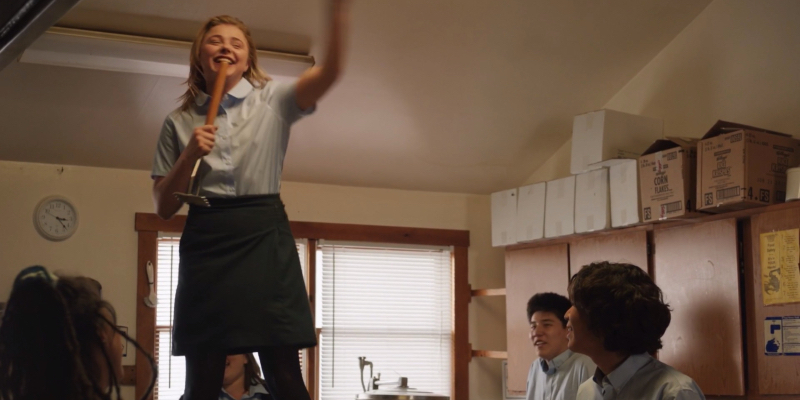
Instead of simply filming Emily M. Danforth’s sprawling novel, Desiree Akhavan created a true adaptation – focusing on the second half, changing the ending, still capturing its essence. Like its source material, Akahavan’s film uses the story of a teen girl’s time at conversion therapy as a larger exploration of the way queer people are brainwashed to doubt our feelings. The headstrong Cameron – an incredibly dykey and just plain incredible performance from Chloë Grace Moretz – is a perfect protagonist as we watch her slowly start to lose a grasp on her reality. Aided by Ashley Connor’s cinematography and Julian Wass’ score, Akhavan’s film is a truly cinematic experience, never afraid to let a moment or an image sit. The sex scenes are long and specific, reminding an audience just how different it is to watch a queer woman coming-of-age movie made by an actual queer woman.
Also the movie is really funny! Is it a serious drama about queer self-hatred? Yes. Does it still have Akhavan’s biting sense of humor? Also, yes. It’s not maudlin. It shows how queer people, even in our lowest moments, find community and joy, make jokes about our oppressors, and keep on going to live another day. – Drew Gregory
9. Good Manners (dir. Juliana Rojas, Marco Dutra, 2017)
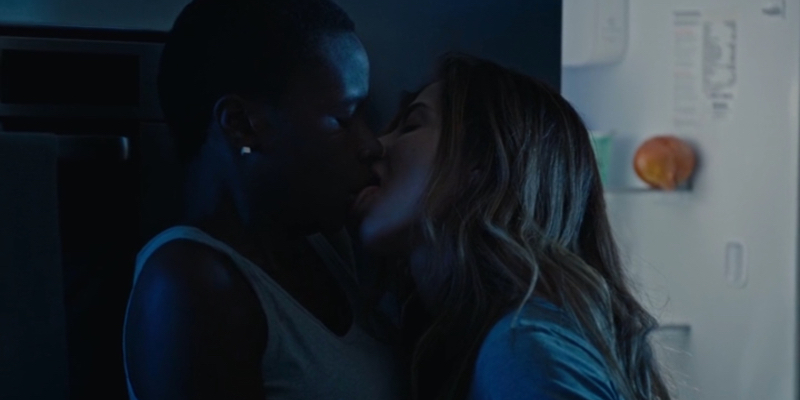
Horror-camp and relationship drama collide in this Brazilian movie that takes its sweet, sweet time building its world and mythology. But that character development and languidity is a welcome change of pace and stakes for what is ultimately a monster movie. Good Manners suffuses that genre with feelings as well as commentary on class, motherhood, and queerness. Isabél Zuaa’s quiet but memorable performance as Clara, a nanny for a rich and famous pregnant woman who she starts a relationship with, is the movie’s backbone, but Good Manners also manages to tackle a lot at once, including a coming-of-age story for its young boy Joel. It’s more complex than the average monster movie, but it also hits all the right notes of the genre with gore and frights. – Kayla Kumari Upadhyaya
8. Certain Women (dir. Kelly Reichardt, 2016)
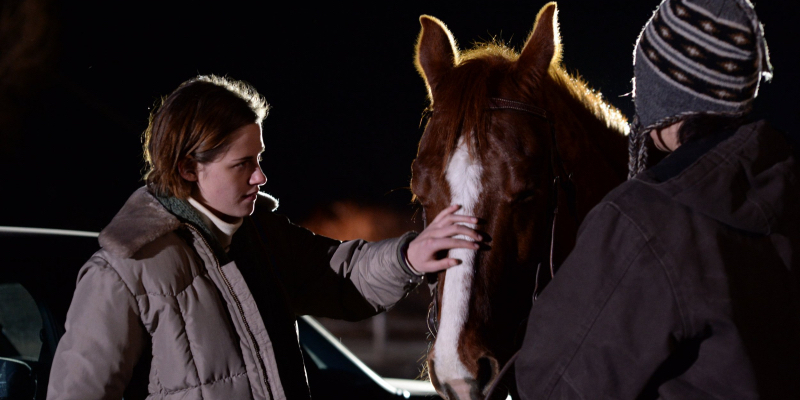
Based on three short stories by Maile Meloy, my favorite of Kelly Reichardt’s many quiet American masterpieces is a tribute to stubborn women. The sections starring Michelle Williams and Laura Dern are heartbreaking and beautiful, but it’s the third section starring Kristen Stewart and newcomer Lily Gladstone that makes me want to scream or crawl within myself and implode. Gladstone plays Jamie, a ranch hand who stumbles upon the law class being taught by Stewart’s Beth. Despite having no interest in law, Jamie keeps returning to this twice a week class to spend time with Beth. It’s less a romance and more a crush. It’s a less a crush and more a window into possibility. Jamie is living an isolated life where she’s surrounded by more animals than people. And the people she does interact with are certainly not queer – and certainly not Kristen Stewart. Of the three women in this movie Jamie is the least outwardly confident. In fact, she’s rather timid. But there’s something about Beth that drives her out of herself and pushes her to take risks and it’s thrilling to witness. This is a melancholy film, but it’s also a celebration of our tiny triumphs, our attempts at something more. – Drew Gregory
7. Dirty Computer (dir. Janelle Monáe and others, 2018)
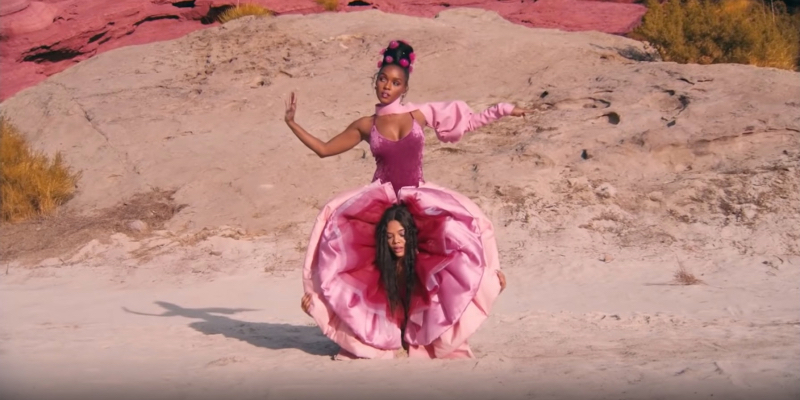
Janelle Monáe has always integrated science-fiction into the stories she tells in her music — dating back to the release of Metropolis: The Chase Suite, released in 2007 — but with the release of Dirty Computer, she took things to a whole new level. With her “emotion picture,” Monáe created a visual compliment to her GRAMMY nominated album, that was a part Westworld, part Eternal Sunshine of the Spotless Mind, part The Handmaid’s Tale and part THX 1138.
But the veneer between science fiction and reality has never felt thinner. In the world Jane 57821 roams and the one where Janelle Monáe lives as a queer black woman, there is a concerted efforts to erase the things that make us “dirty.” Dirty Computer is a call to resist the cleanse and to fight to be “free-ass motherfuckers.” – Natalie
6. Carol (dir. Todd Haynes, 2015)
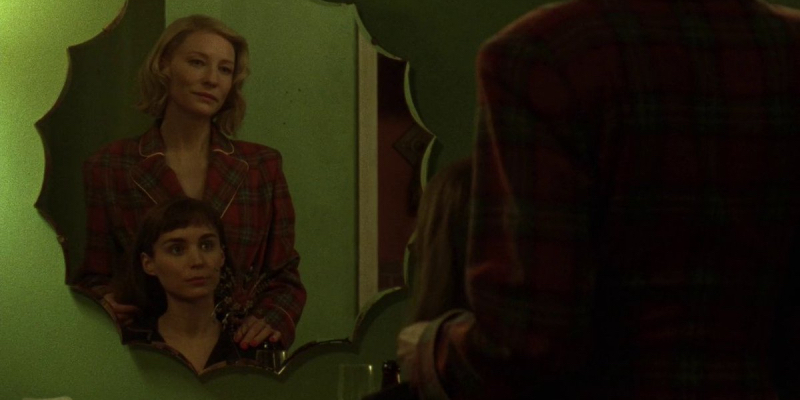
We’ve written more about Carol than any movie ever, and I’d venture to say that the internet at large has written more about Carol than any other lesbian movie ever — yet, somehow, I still cannot believe it exists. You can (and plenty of people do) disagree with me, of course, but I think it’s perfect. I think it’s a perfect film. Here’s a thing a lot of people don’t know: There’s a scene in the script in act one where Therese gives Richard a handjob. Director Todd Haynes did film it, but decided to cut it in editing — because he didn’t want the pleasure of a man to be the center of any experience Therese or Carol have in the movie. And that’s the real delight of the entire thing for me. Yes, it’s a brilliantly filmed and acted story about embracing who you are and the danger and ecstasy of giving into queer desire, but it’s also a story that relentlessly, mercilessly shoves men out of the frame. It invites the audience not to ignore them, but to laugh at them. At the end of the day, that’s why Carol didn’t win any Oscars. “Do you miss Richard?” Carol asks. Therese almost giggles. “…no. I haven’t thought about him all day.” – Heather Hogan
5. Professor Marston and the Wonder Women (dir. Angela Robinson, 2017)
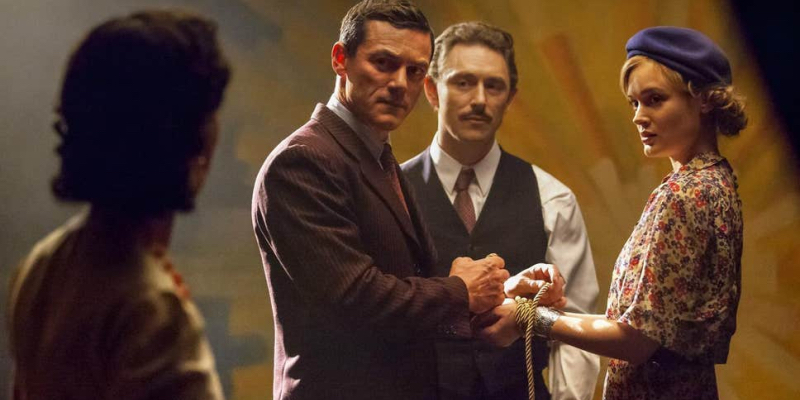
This movie is one of the most stunning movies I’ve ever seen. It’s a celebration of women and breaking the mold and daring to love. It’s heartbreaking and heartwarming and a true celebration of the love between three people in a casual and understanding way. I had heard that Professor Marston was in a polyamorous relationship with the women who inspired the comic but I’ll be honest, I thought the movie would maybe hint at it or mention it in passing; instead, it was the entire heart of the movie. It was dramatic and artistic and smart and also I learned things about science AND about Wonder Woman which really is my nerdy dream come true. I cannot recommend this unexpectedly unabashedly queer movie enough. – Valerie Anne
4. Portrait of a Lady on Fire (dir. Céline Sciamma, 2019)
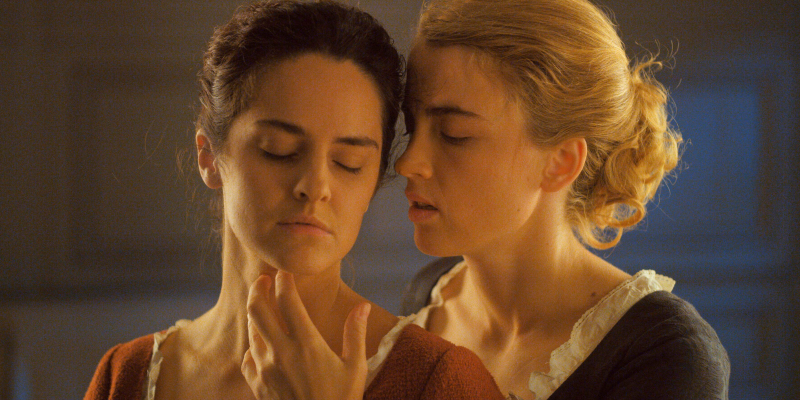
Before I came out, my lesbian viewing was restricted to films I could reasonably watch under the guise of cinephilia. It’s how you end up a scholar of queer film history before ever seeing an episode of The L Word. When Céline Sciamma’s debut film Water Lilies was released I wasn’t sure which category it fell into. The trailer was so completely gay – teenage girls kissing in between synchronized swim routines – but it was beautifully shot and in French so I convinced myself I could watch it. I was enthralled by its cinema. I was enthralled by its queerness.
Ten years later – my obsession growing with her next two films Tomboy and Girlhood – Sciamma created a film that once again stunned me as both a work of cinema and a work of queerness. There is no filmmaker around today with a greater grasp of cinematography than Céline Sciamma. While less flashy than some of the other greats, Sciamma always knows exactly where her camera should land – how the images can best bring out the truth of her characters. Portrait of a Lady on Fire is about the creation of lesbian art and it is itself a remarkable work of lesbian art. There can be no arguments made against its cinematic importance and I hope some closeted cinephile in some far off suburb will lose her fucking mind watching Noémie Merlant spit water into Adèle Haenel’s mouth. – Drew Gregory
3. Appropriate Behavior (dir. Desiree Akhavan, 2014)
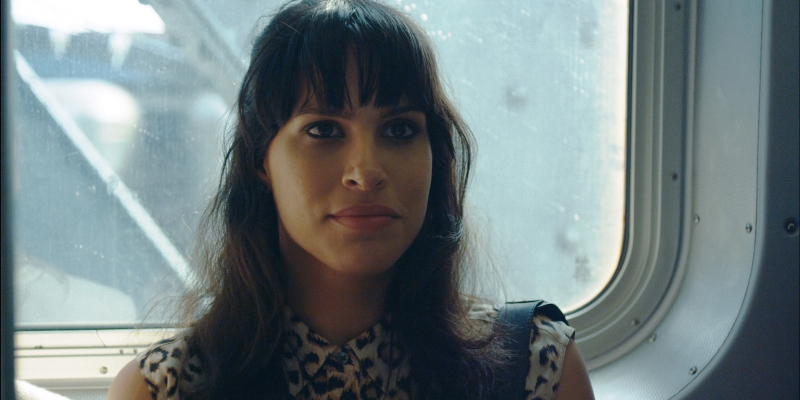
Desiree Akhavan wrote, directed, and stars in this edgy hipster comedy, playing her own version of the Brutally Honest Misanthropic Anti-Pixie Daydream Girl. She vacillates from hyperbolic-but-relatable despair to Ilana Wexler-esque repellant charm. It’s quirky, funny, and delightfully indie, chock-full of the inside queer jokes she’d later employ so well in The Bisexual. Since the release of this film, Akhavan has emerged as one of the most compelling and original voices of her generation, committed to authentic, unsparing portraits of queer millennial life. – Riese Bernard
2. The Handmaiden (dir. Park Chan-wook, 2016)
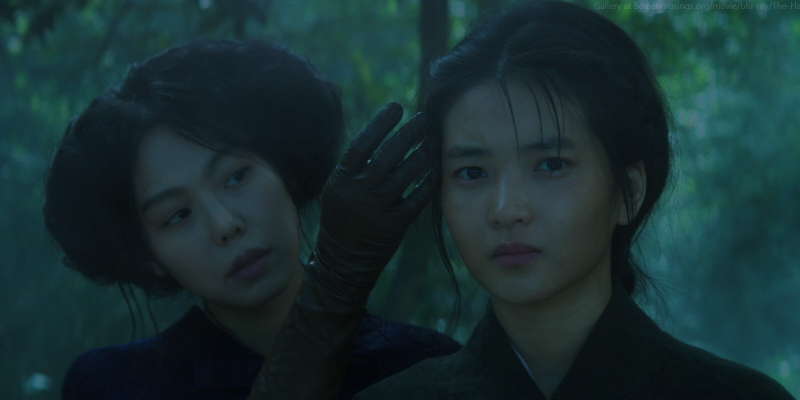
Park Chan-wook’s erotic psychological-thriller-meets-heist-movie based on the novel Fingersmith by Sarah Waters is a feat in measured but stylish storytelling. It’s violent and sexual, but those aspects of its narrative speak to larger themes and the immersive visual landscape of the tale so that there isn’t a moment of the movie that feels gratuitous. It shocks without that being all it’s trying to do. Because ultimately, these are very real characters ensconced in a very real love story. Revenge and romance are driving forces for the movie’s action, and several scenes teeter on the edge of desire and danger. – Kayla Kumari Upadhyaya
1. Pariah (dir. Dee Rees, 2011)
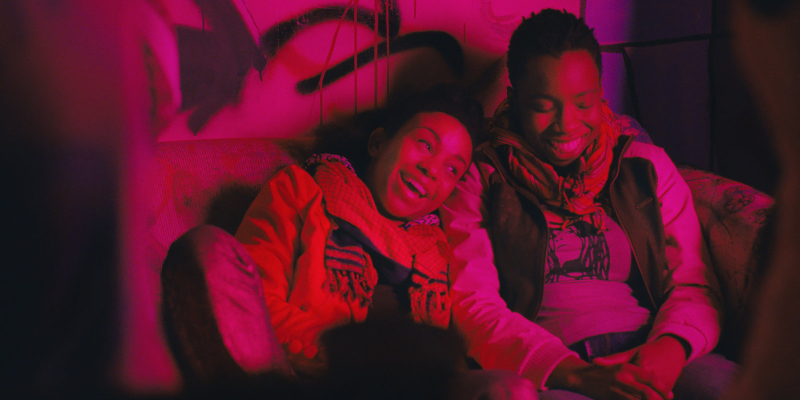
Back in 2018, still basking in the glow of Moonlight‘s upset of La La Land for the Best Picture Oscar, famed lesbian author Jacqueline Woodson asked Lena Waithe if she thought we’d ever have a “lesbian Moonlight.” Waithe quickly points out that we’ve already had one: Dee Rees’ stunning coming-of-age and coming out drama, Pariah. But like its central character, Alike, Pariah found itself adrift in a world not yet ready for its honesty.
Adepero Oduye astounds as Alike, the 17-year-old who navigates her identity along a Brooklyn bus route: literally shifting from the conservative, feminine girl her mother loves to the masculine-of-center woman who loves other women, as she makes her way across town. Pariah is, at times, painful to watch — in the way that things that feel too true usually are — but optimism persists throughout. – Natalie
“Booksmart” Pushes Teen Comedies and Lesbian Movies to Hilarious New Heights
When Janis Ian gives Cady Heron a tour of the cafeteria at her new high school, she describes basically every teen movie ever: You got your freshmen, ROTC guys, preps, J.V. jocks, Asian nerds, cool Asians, varsity jocks, unfriendly black hotties, girls who eat their feelings, girls who don’t eat anything, desperate wannabes, burnouts, sexually active band geeks, the greatest people you will ever meet, and the worst. The flavor may change slightly depending on how much of each ingredient you use, and the way those ingredients interact with each other, but the recipe for high school comedies remains largely the same. Enter Olivia Wilde’s Booksmart, a film that honors and skewers the genre. It also does what Mean Girls wouldn’t: It makes a main girl gay.
Molly and Amy, played to absolute perfection by Beanie Feldstein and Kaitlyn Dever, have been best friends forever, and unlike their peers who’ve been living it up with no regard for the future, they’ve stayed buckled down, locked up, planning for college and beyond. Molly’s going to Yale for undergrad on her path to becoming the youngest United States Supreme Court Justice. Amy’s going to Botswana to work on a reproductive health initiative and then she’s off to Columbia. They’re okay with not fitting in — it just means they’re better than everyone else (Molly meditates to a Maya Rudolph-voiced affirmation track every morning that details her various superiorities). Only, on the last day of school, Molly and Amy discover that most of their classmates are also headed off to prestigious colleges or six-figure coding jobs with Google. Molly decides their only recourse is to go out the night before graduation and do all the reprobate teenage things they were too buttoned-up to do for the last four years.
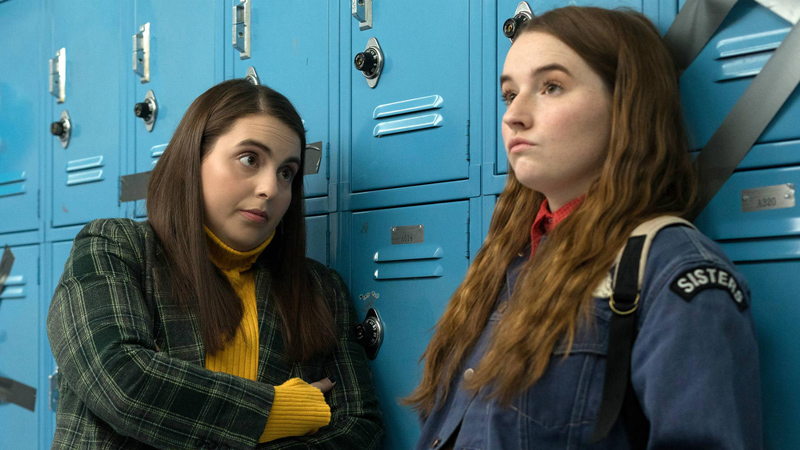
Amy’s lesbianism is a non-issue for her peers and only awkward with her parents when it gets specific, but that hasn’t really been a problem for her so far because — despite the fact that her mom (Lisa Kudrow) and dad (Will Forte) think she and Molly are dating — she doesn’t have any experience at all with girls. She’s got a crush on a skateboarder from afar, but that’s just longing slow-mo gazes and clumsy attempts at casual conversation. Molly and Amy’s self-seriousness extends to Amy’s sexuality. She came out, said out loud, “I’m a lesbian,” but with the exception of the super extra drama gays, she’s unclear if anyone else in her class is queer. Her Volvo and her jean jacket are covered with feminist bumper stickers and enamel pins, but maybe there are other girls out here also wanting to make out with girls but not make a big deal about it?
The fact that everything’s a big deal to Molly and Amy could get tiresome, and fast, but Feldstein, Dever, and Wilde bring such tender affection to bear on these teenage girls. They grew up alongside Sasha and Malia, idolizing Michelle Obama and and witnessing the double standard applied to her every action. They came of age in the world where Hillary Clinton lost a presidential election to Donald Trump. Racism and homophobia and transphobia and misogyny and school shootings and climate change are things they can’t ignore; those issues have shaped who they are. It’s so easy to see where they’re coming from.

On the other hand, Olivia Wilde doesn’t spare them. The parade of absurdity they march through on the trek to reach their pre-graduation night summit — the coolest, most debauched party in town — forces them to interact with everyone they’ve avoided their entire high school careers. The try-hard son of a millionaire, the melodramatic gay thespians, the beautiful mean girls, the jocks, the stoners, and even the outside-of-school personalities of their teachers and administrators. (Jessica Williams’ storyline is, sadly, the only one that doesn’t do her justice — but she’s very funny.) Each encounter becomes more and more ludicrous and by the time they reach their destination, they’ve already gotten way more than they bargained for when they snuck out under the guise of a sleepover. But the wackiness has only just begun!
What really makes Booksmart is Molly and Amy’s relationship. It feels lived in. Their chemistry, all their little inside jokes, their banter, the way they navigate each other’s insecurities and quirks and annoying habits, easily moving between sounding board to hype girl to loyal confidante to pal who coaxes you to watch lesbian porn on your phone. Wilde strikes a really brilliant balance between allowing the audience to laugh along with Molly and Amy’s shenanigans — to get inside their inside jokes — without laughing at their often overwrought do-gooder feminism. Every joke lands, even a running character gag that could have easily become grating in less skilled hands. The stakes become clear, the conflict is heartbreaking, and gosh is the resolution ever earned.
Booksmart is a brilliant teen flick and a savvy female-fronted comedy and an exceptional lesbian film — and it’s also just a really smart, really funny movie. It transcends every genre it’s a part of.
“Booksmart” Preview: Watch the First 6 Minutes of Olivia Wilde’s Queer High School Buddy Comedy Right Now
Olivia Wilde’s teen buddy comedy, Booksmart, a film about two feminist friends named Molly (Beanie Feldstein) and Amy (Kaitlyn Dever), one of whom is queer, trying to live it up before they graduate high school — because it turns out they spent so much time studying, they forgot to be teenagers — opens in sneak peek form around the country tonight, before landing in wide release next week. The reviews are starting to trickle in, and they’re almost all positive! And don’t worry, we’ve got a review coming at you ASAP. For now, though, what we’ve got is the first six minutes of the movie, uncut, for your viewing pleasure!
Are you excited? Cautionary optimist? Do you think this will make Janis Ian retroactively come out?
Pop Culture Fix: Olivia Wilde’s Queer Teen Buddy Comedy “Booksmart” Is Just One of the Five Gay Trailers in This Post
In this week’s Pop Culture Fix, I will prove, definitively, that all movies are gay now (or should be).
+ Literally all I want to do is talk about Captain Marvel, and while I will mostly refrain from doing that in this Pop Culture Fix, I would like to note that the film destroyed even Marvel’s most optimistic projections, and will earn over $500 million worldwide while I’m typing this sentence on Tuesday afternoon. Variety even says the myth of women superheroes flopping at the box office is over.
And now I shall unleash so many trailers for queer films upon you.
+ Booksmart is blowing critics’ minds at SXSW. It’s an Olivia Wilde-directed indie buddy comedy about two teenage girls — one of whom is queer — getting up to some shenanigans on their last night of high school. Lady Bird meets Superbad is what they say. New York Magazine‘s Emily Yoshida called it a masterpiece.
Getting straight A’s. Giving zero F’s. Watch the restricted trailer for #BooksmartMovie now. pic.twitter.com/YIfNac8skX
— Booksmart (@Booksmart) March 11, 2019
+ My Days of Mercy, starring Ellen Page and Kata Mara.
https://www.youtube.com/watch?v=xr6FMc_nPmY&feature=youtu.be
+ Anna Paquin’s Tell It to the Bees.
+ The full official season two trailer for Killing Eve.
https://www.youtube.com/watch?v=TLq2BDkCzyA&feature=youtu.be
+ BBC has dropped a trailer for Gentleman Jack, a new series about Anne Lister. (In the US, we’re getting it on HBO.)
"She doesn't conform to the way people think a woman should look, or think, or be."
Suranne Jones stars as the one-of-a-kind Anne Lister, who's on a mission to marry a seriously wealthy woman. 🎩 #GentlemanJack by Sally Wainwright (@spiceyw) is coming soon to BBC One. #IWD2019 pic.twitter.com/by2nToivwr
— BBC One (@BBCOne) March 8, 2019
+ Autostraddle CEO/Editor-in-Chief Riese Bernard is rightly quoted in this piece at NewNowNext about queer women who have never seen The L Word coming out and admitting it.
+ There’s a new Orphan Black series in development at AMC? I asked our very own Orphan Black expert Valerie Anne to explain this to me and she did so thusly: “IT’S SACRILEGE IS WHAT IT IS. IT’S NOT ORPHAN BLACK WITHOUT TATIANA, YOU MONSTERS.”
+ The entire USWNT is suing U.S. Soccer for gender discrimination. Megan Rapinoe and Alex Morgan chatted about it on CBS This Morning.
+ Frankie Shaw’s SMILF has been canceled at Showtime due to a probe into her alleged misconduct.
+ How one joke evolved along with Rhea Butcher’s gender identity.
+ Why Women Kill is coming to CBS All Access.
+ One more thing:
"Harold"
-Carol 2019 #CaptainMarvel pic.twitter.com/jB3MMK3CB0— Jordan B (@nowhere897) March 8, 2019
+ Hulu has set a premiere date for Harlots season three and it’s July 10th, with episodes dropping on subsequent Wednesdays after that.
+ Netflix has set a premiere date for She’s Gotta Have It season two and it’s May 24th.
+ It feels like Freeform’s Jordin Sparks’ comedy has to have a gay character, right?
+ And finally: Busy Phillips flew a plane around LA telling Netflix to #RenewODAAT! (I mean, she hired a plane — she didn’t fly it herself; she’s not some kind of Alison DiLaurentis.)
